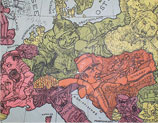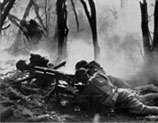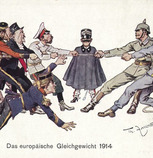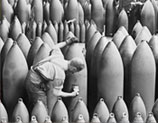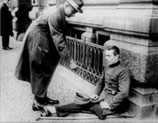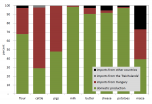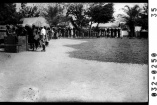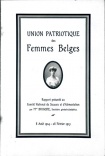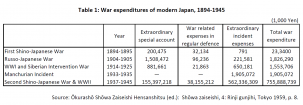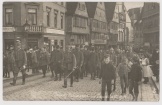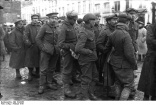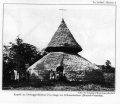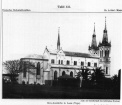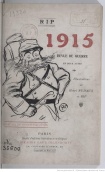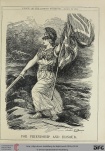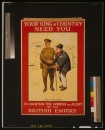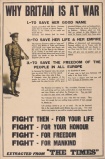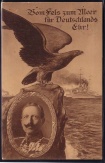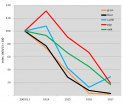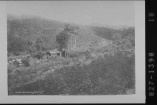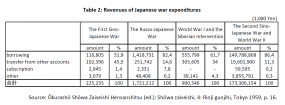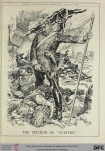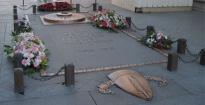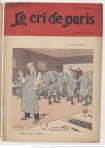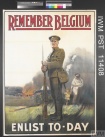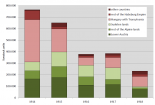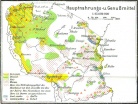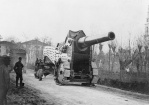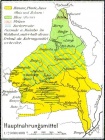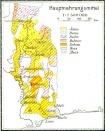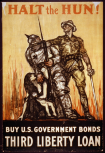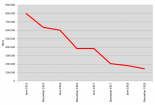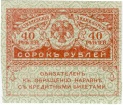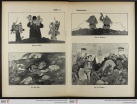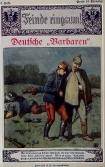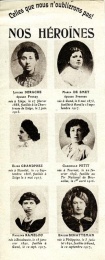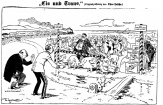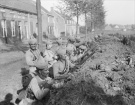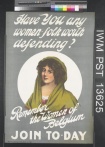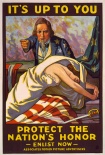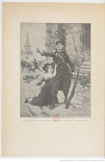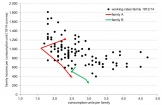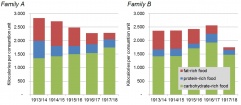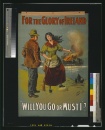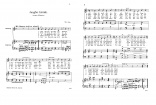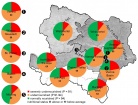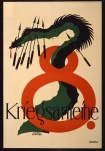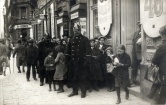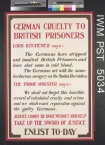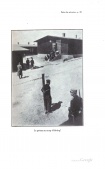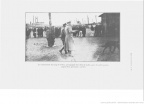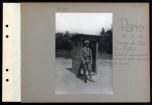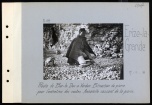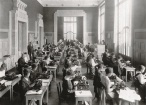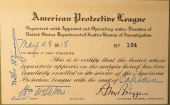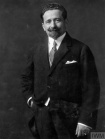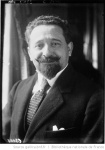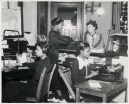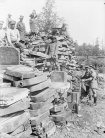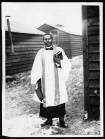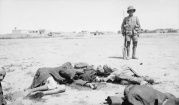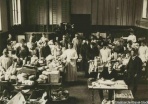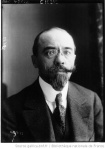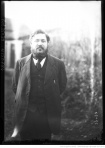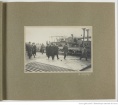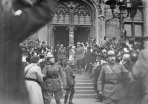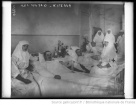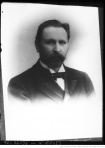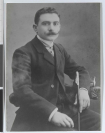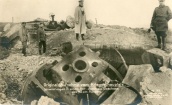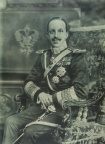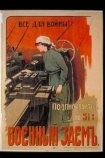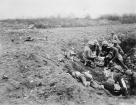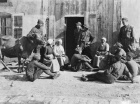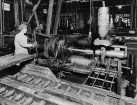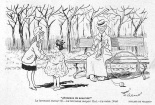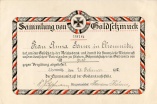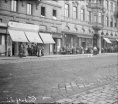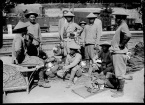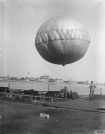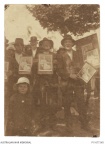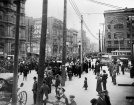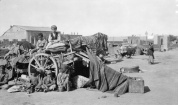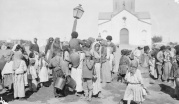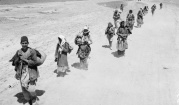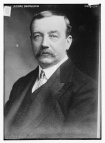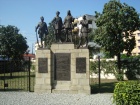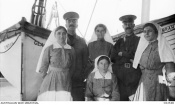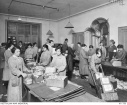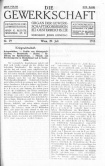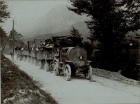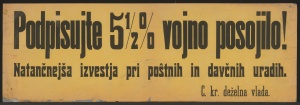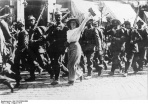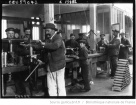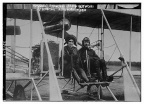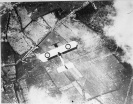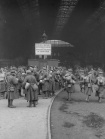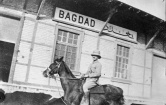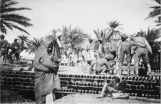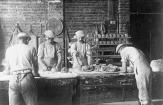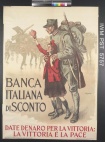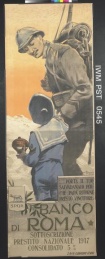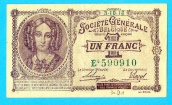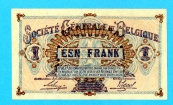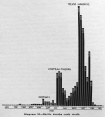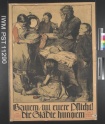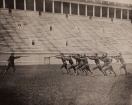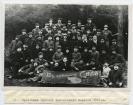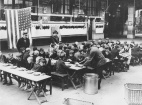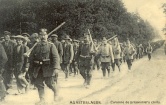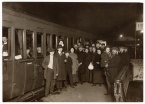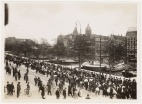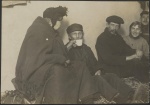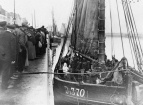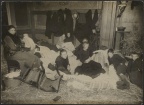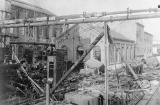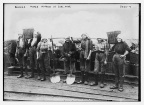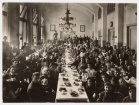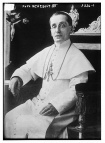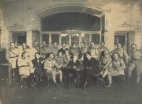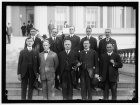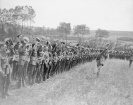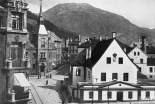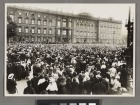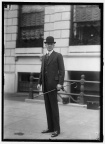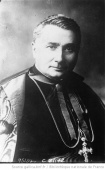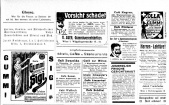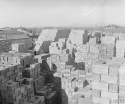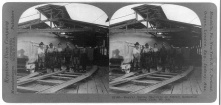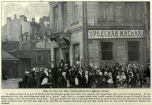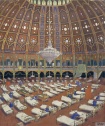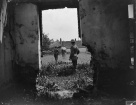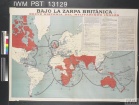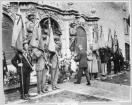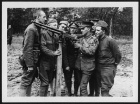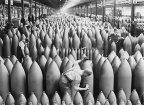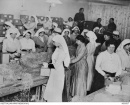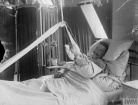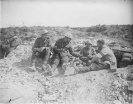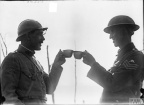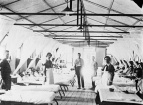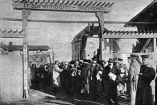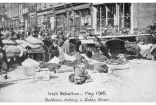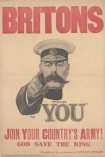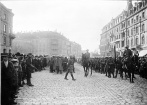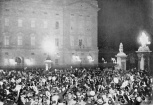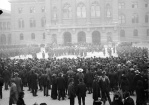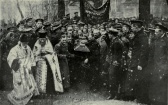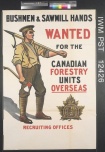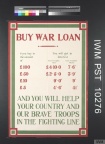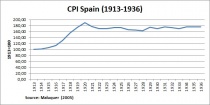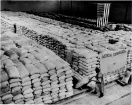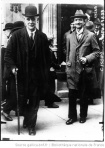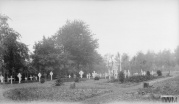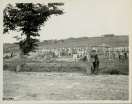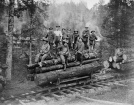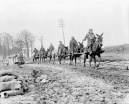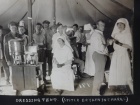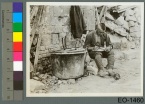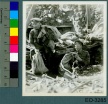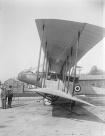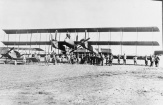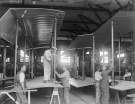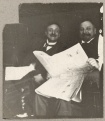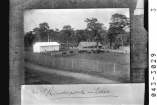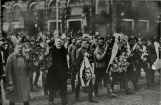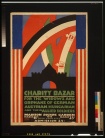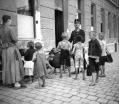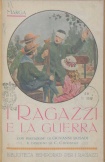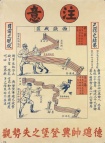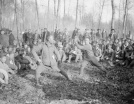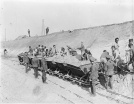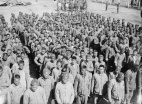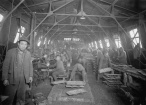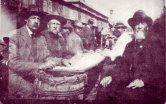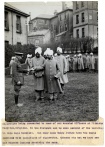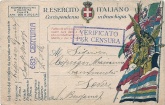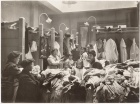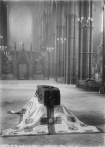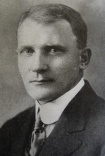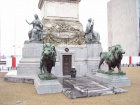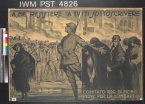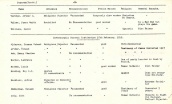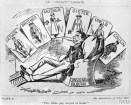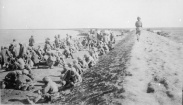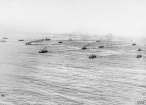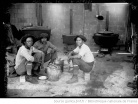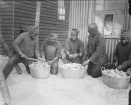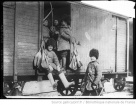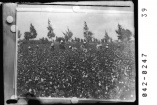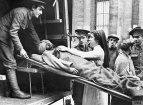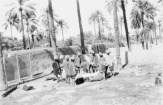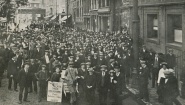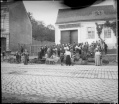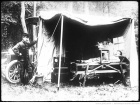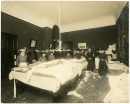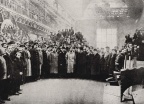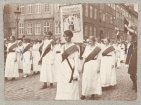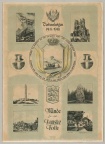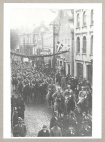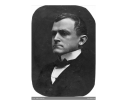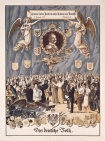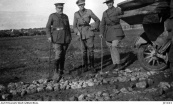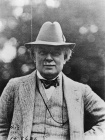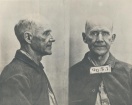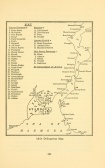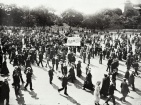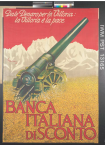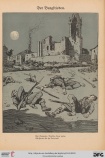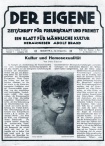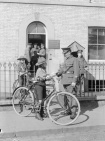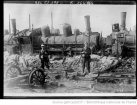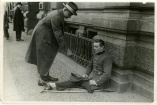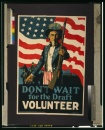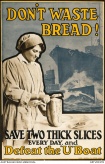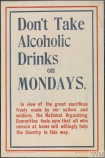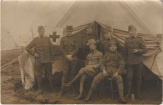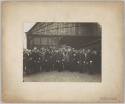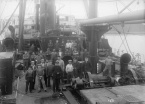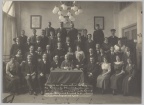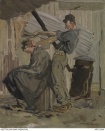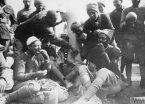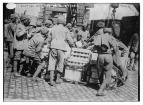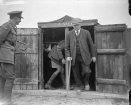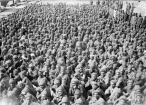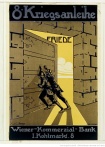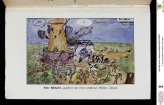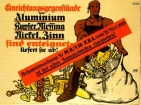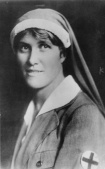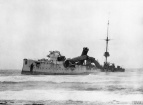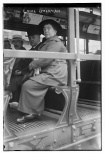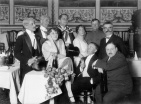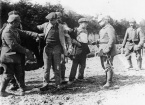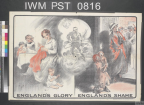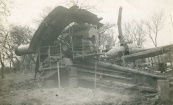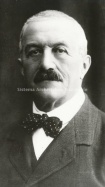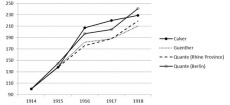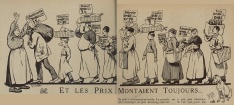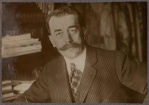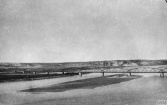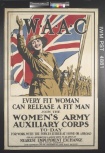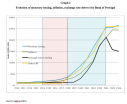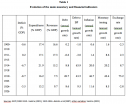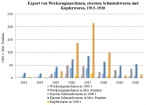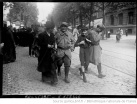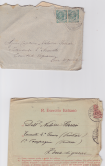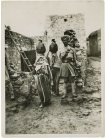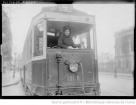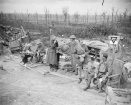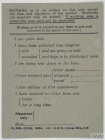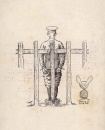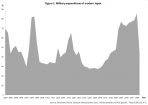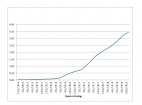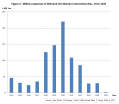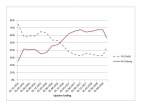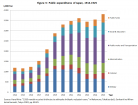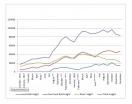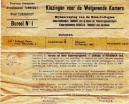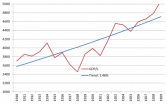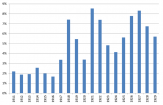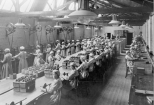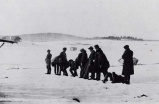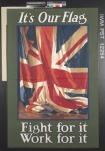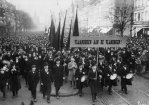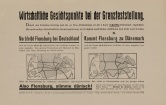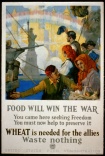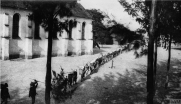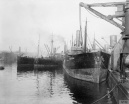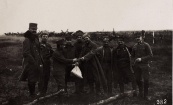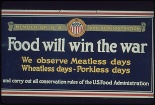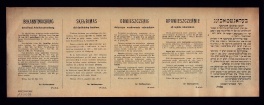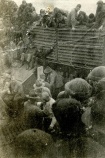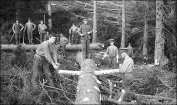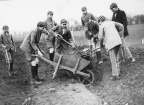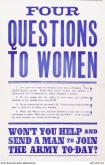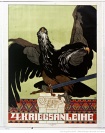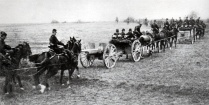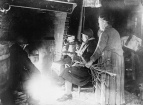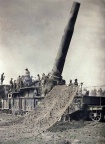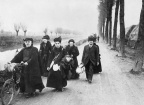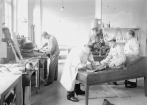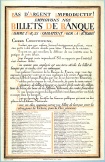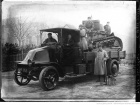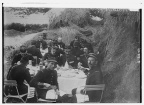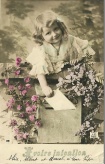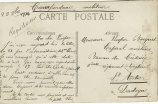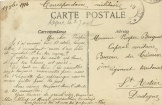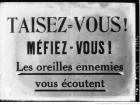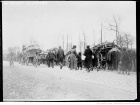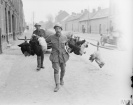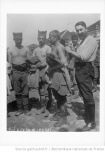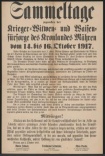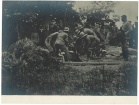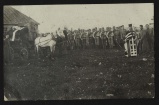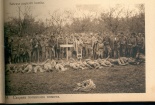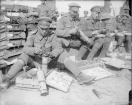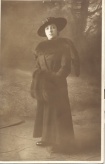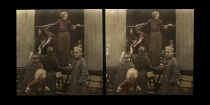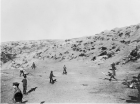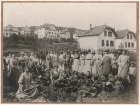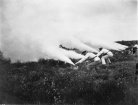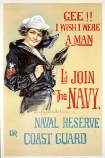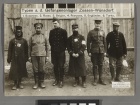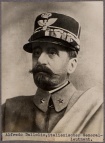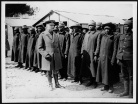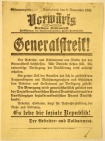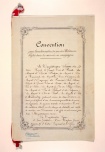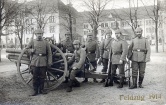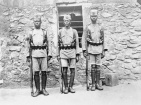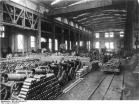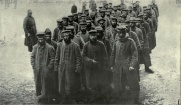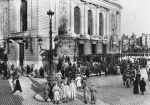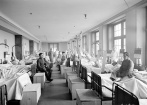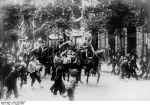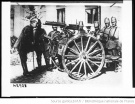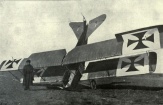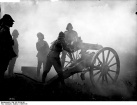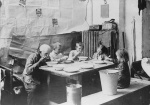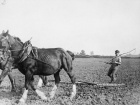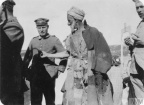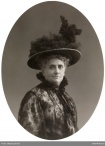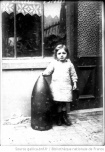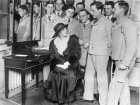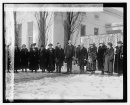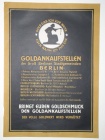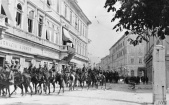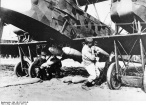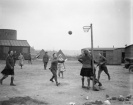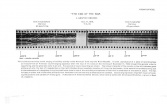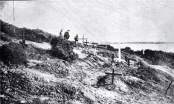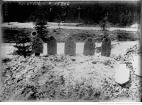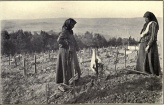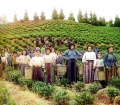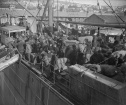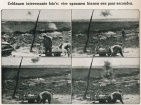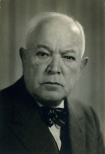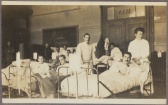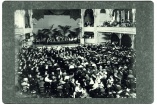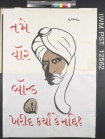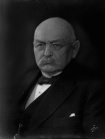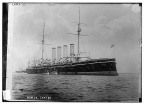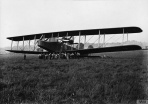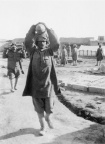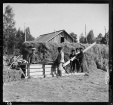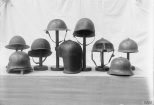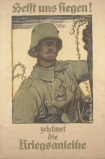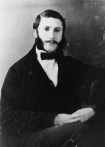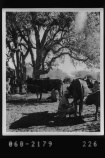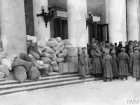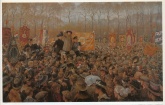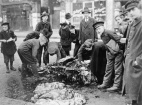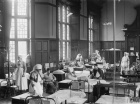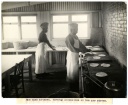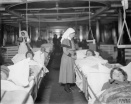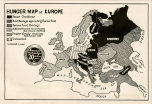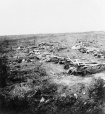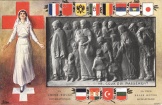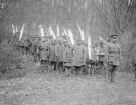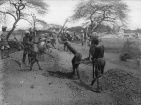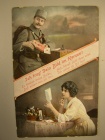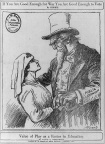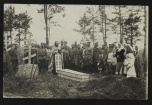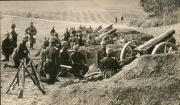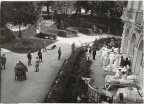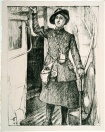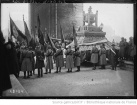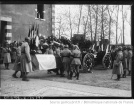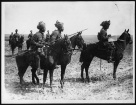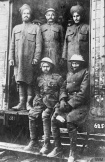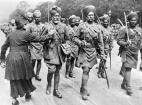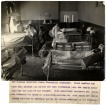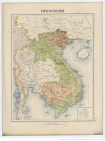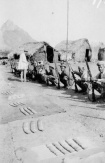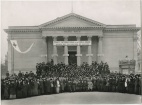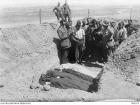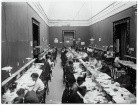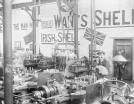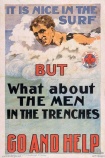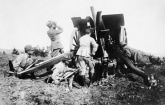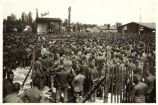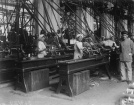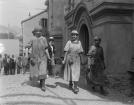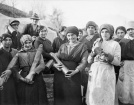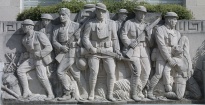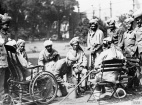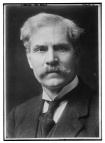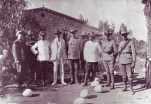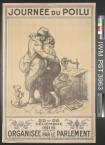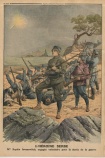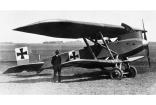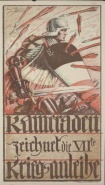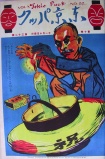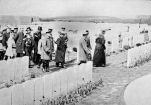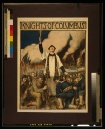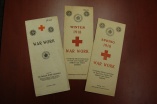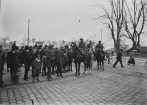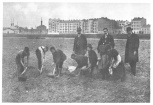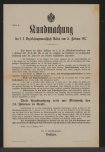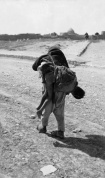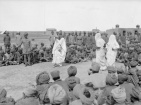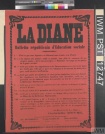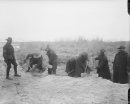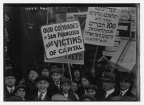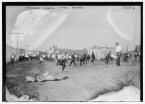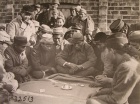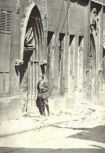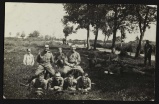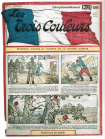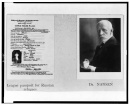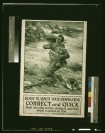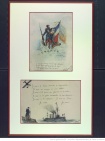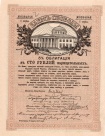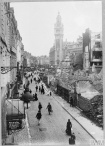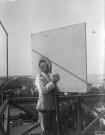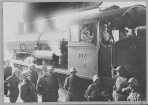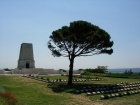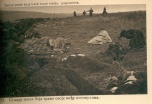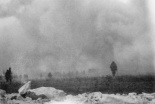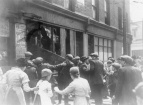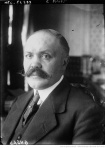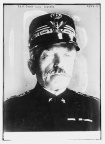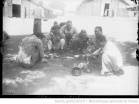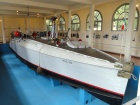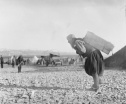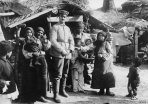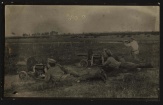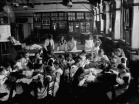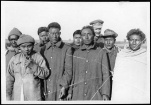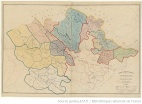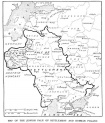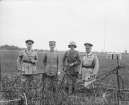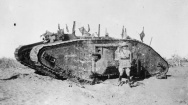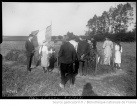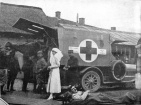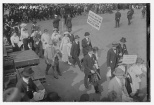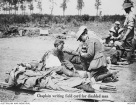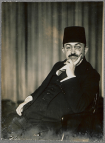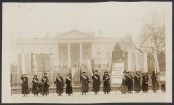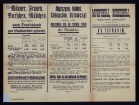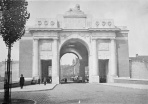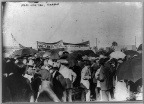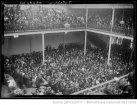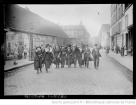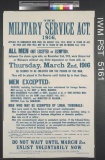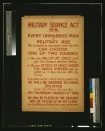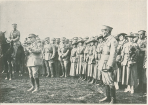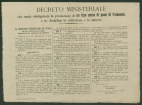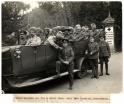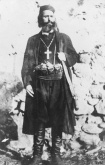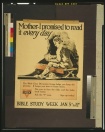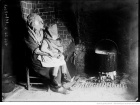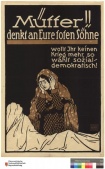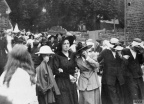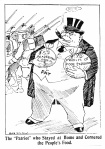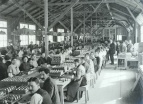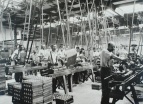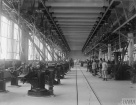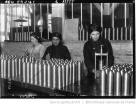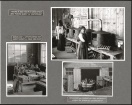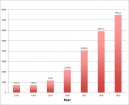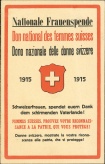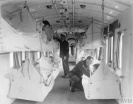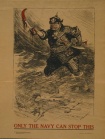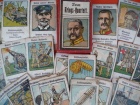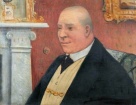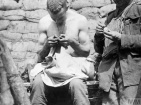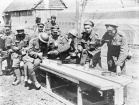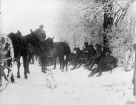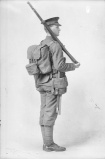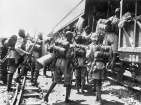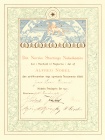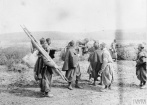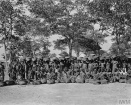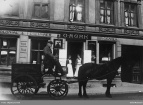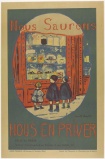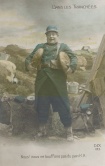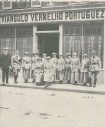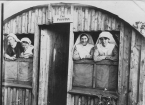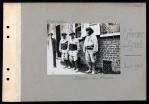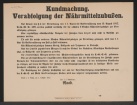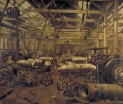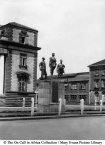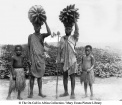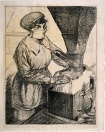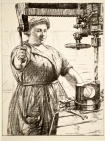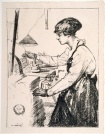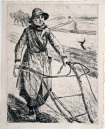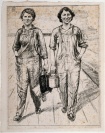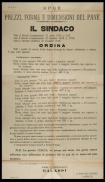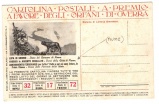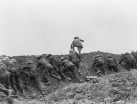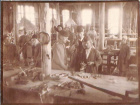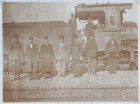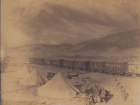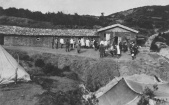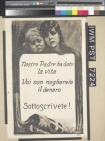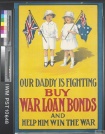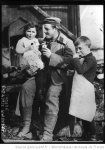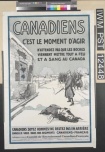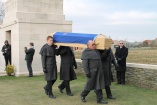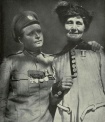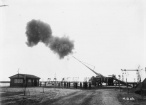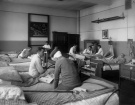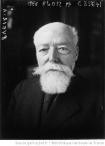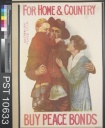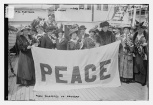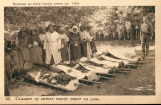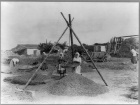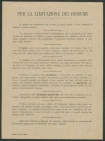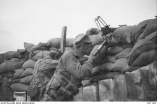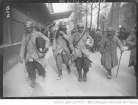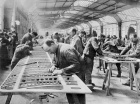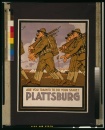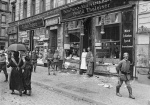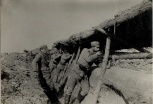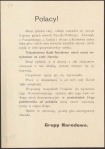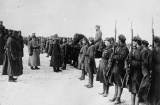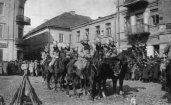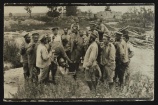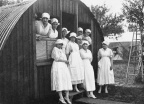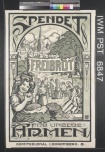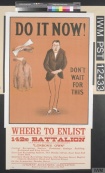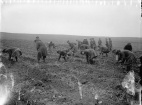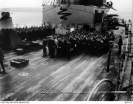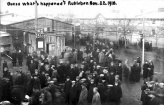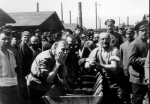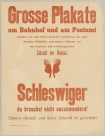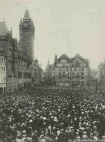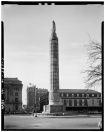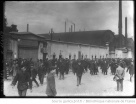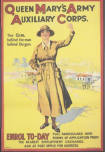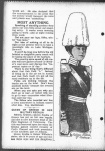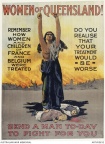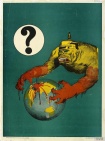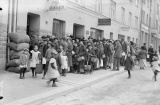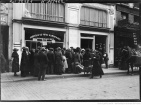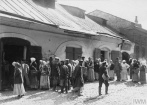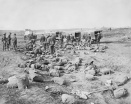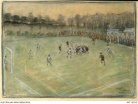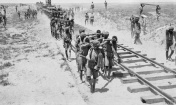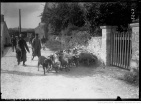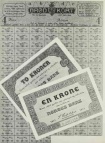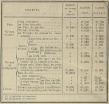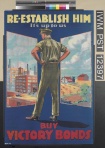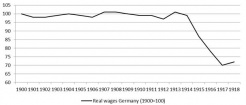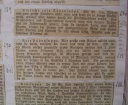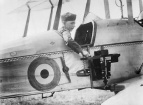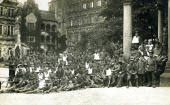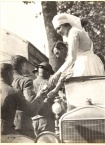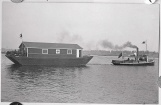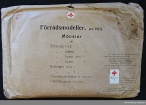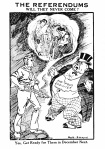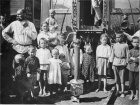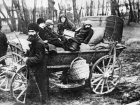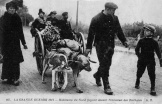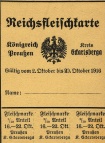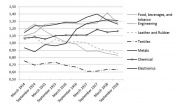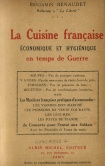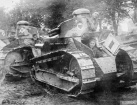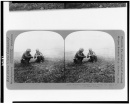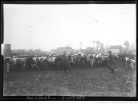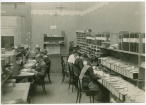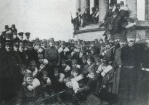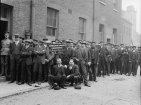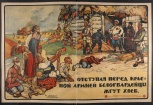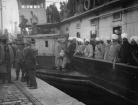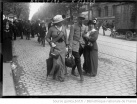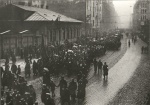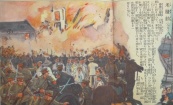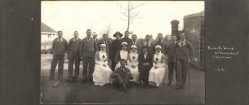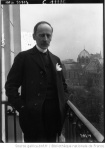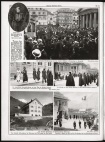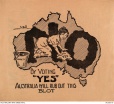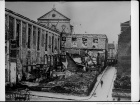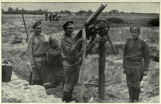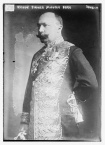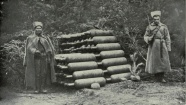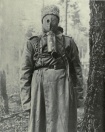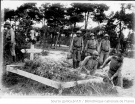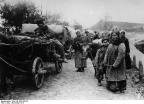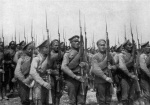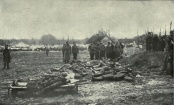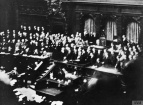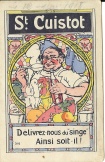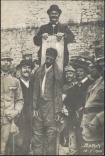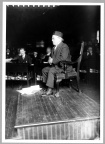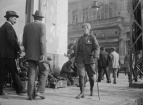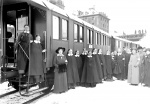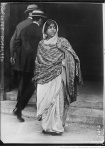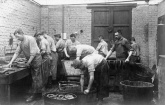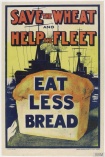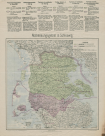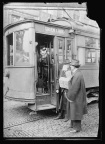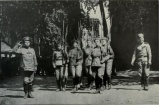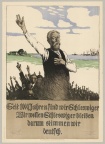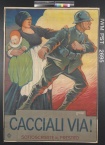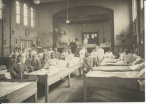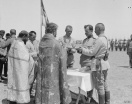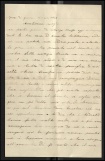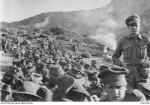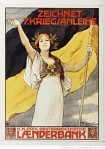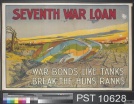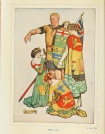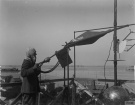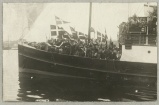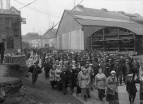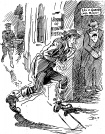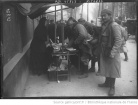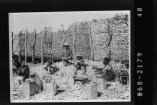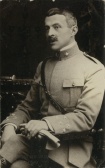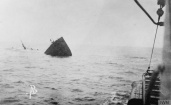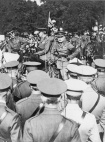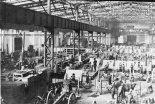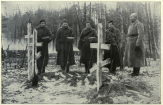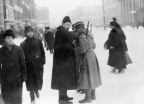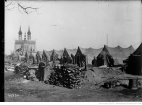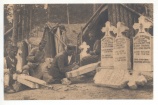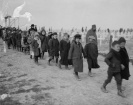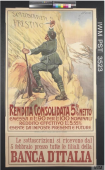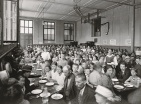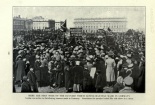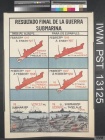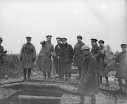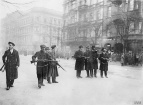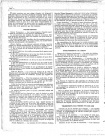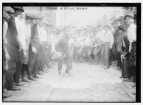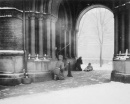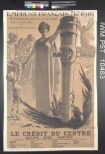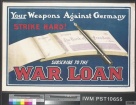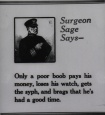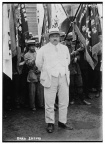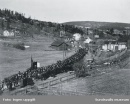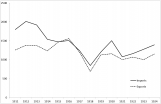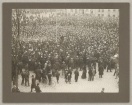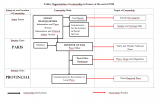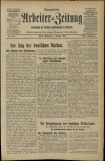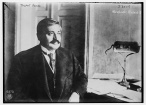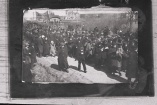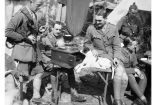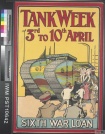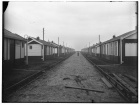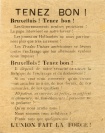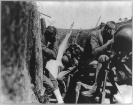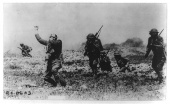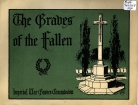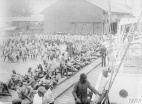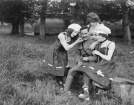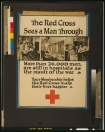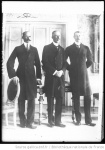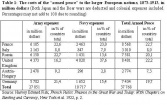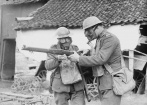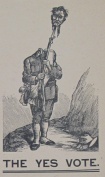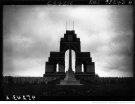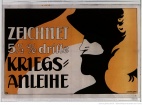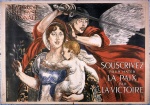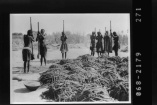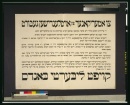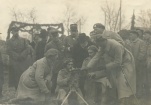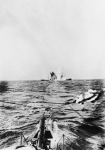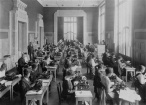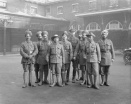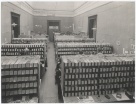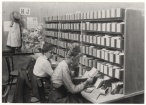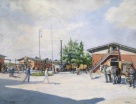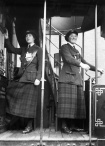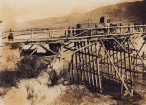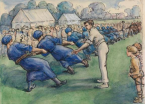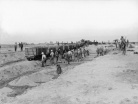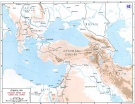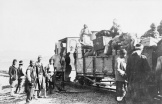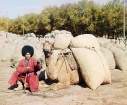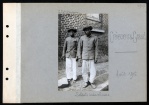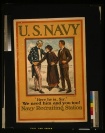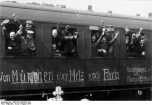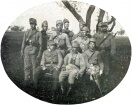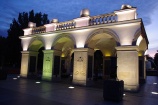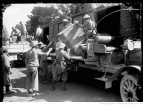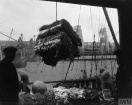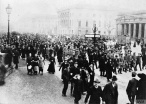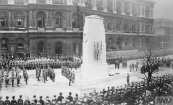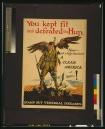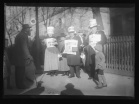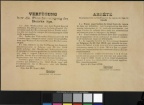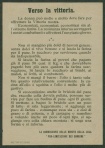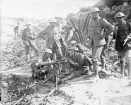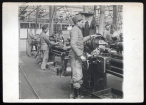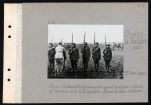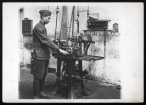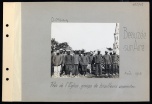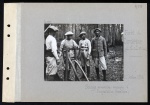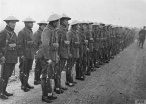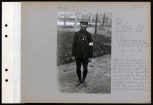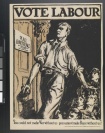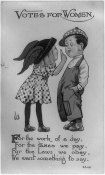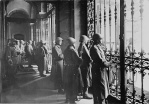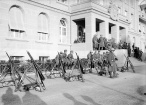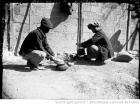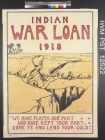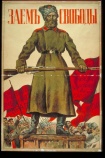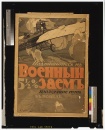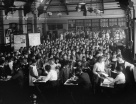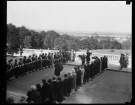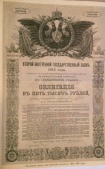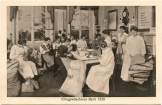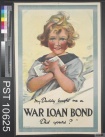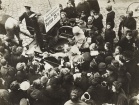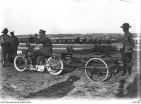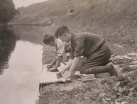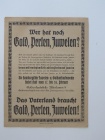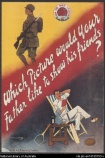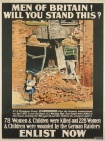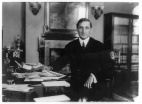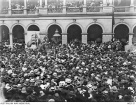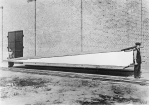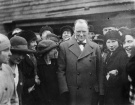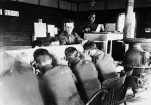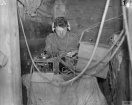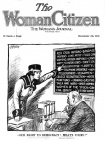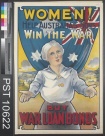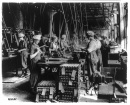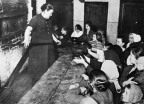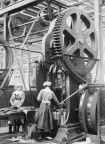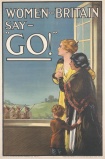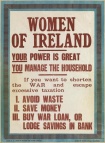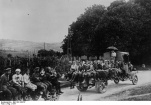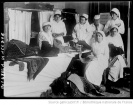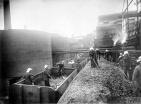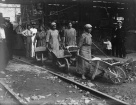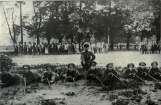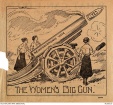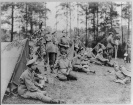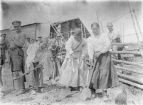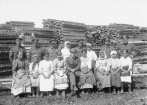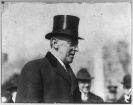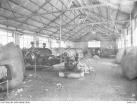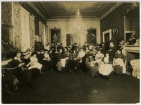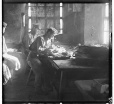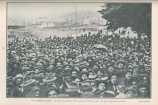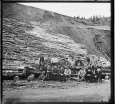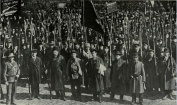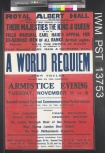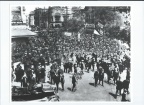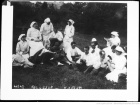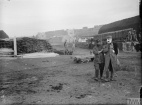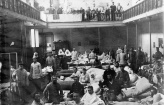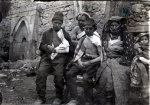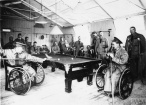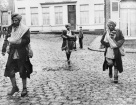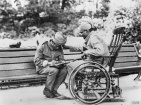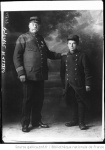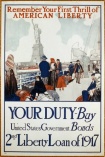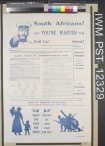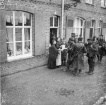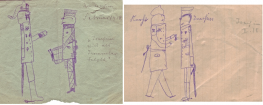Themes Home Front
Survey Articles (Thematic)
- Armaments Production
- Bereavement and Mourning
- Children and Youth
- Civilian Morale
- Controversy: War and Civility
- Controversy: War Culture
- Controversy: War-related Changes in Gender Relations: The Issue of Women’s Citizenship
- Food and Nutrition
- Health, Disease, Mortality; Demographic Effects
- Hospitals
- International Labour Organization
- Labor
- Labour Movements, Trade Unions and Strikes
- Migration and Mobility
- Moral Norms and Values
- Organization of War Economies
- Property Rights and Economic Nationalism
- Raw Materials
- Red Cross
- Religious Mobilization and Popular Belief
- Rural Society
- Schools and Universities
- Science and Technology
- Sea Transport and Supply
- Sexuality, Sexual Relations, Homosexuality
- Social Conflict
- Social Costs of War
- Staging War. Theatre 1914-1918
- State, Civil Society and Relief Organizations for War
- The Churches
- The Everyday as Involved in War
- The Military at Home
- Transportation and Logistics
- Urban Societies and Cities
- Venereal Diseases
- War Finance
- War Finance and Monetary Consequences: The German Case Revisited
- War Letters: Communication between Front and Home Front
- Wartime Emotions: Honour, Shame, and the Ecstasy of Sacrifice
- Women’s Mobilization for War
Regional Thematic Articles
- African Labour in Europe (Africa)
- Bereavement and Mourning (Africa)
- Bereavement and Mourning (Belgium)
- Bereavement and Mourning, Commemoration and Cult of the Fallen (Austria-Hungary)
- Bereavement and Mourning, Commemoration and Cult of the Fallen (France)
- Bereavement and Mourning (Germany)
- Bereavement and Mourning (Great Britain)
- Bereavement and Mourning (New Zealand)
- Bereavement and Mourning (Ottoman Empire/ Middle East)
- Bereavement and Mourning (Russian Empire)
- Bereavement and Mourning (South East Europe)
- Bereavement and Mourning (USA)
- Children and Childhood (France)
- Children and War (Italy)
- Children and Youth: Ottoman Empire (Ottoman Empire/Middle East)
- Civilian and Military Power (Newfoundland)
- Colonial Labour Requirements during Wartime (Africa)
- Colonial Society (Indochina)
- Disease and Public Health (Ottoman Empire/Middle East)
- Disease and Public Health (Portugal)
- Economies and Home Front (Union of South Africa)
- Exile and Migration (Spain)
- Exile and Migration (Sweden)
- Exile and Migration (Switzerland)
- Exile and Migration (The Netherlands)
- Food and Nutrition (Africa)
- Food and Nutrition (Australia)
- Food and Nutrition (Austria-Hungary)
- Food and Nutrition (Belgium)
- Food and Nutrition (East Central Europe)
- Food and Nutrition (France)
- Food and Nutrition (Germany)
- Food and Nutrition (Great Britain and Ireland)
- Food and Nutrition (Indochina)
- Food and Nutrition (Italy)
- Food and Nutrition (Ottoman Empire/Middle East)
- Food and Nutrition (Portugal)
- Food and Nutrition (Russian Empire)
- Food and Nutrition (Switzerland)
- French Canada and the War (Canada)
- Governments, Parliaments and Parties, Labour, Labour Movements and Strikes (Union of South Africa)
- Health and Medicine (India)
- Humanitarianism (Denmark)
- Humanitarianism (Norway)
- Humanitarianism (Spain)
- Humanitarianism (Sweden)
- Humanitarianism (The Netherlands)
- Indochinese Workers in France (Indochina)
- International Committee of the Red Cross
- Jewish Responses to the War (East Central Europe)
- Labor (Germany)
- Labour (Belgium)
- Labour (China)
- Labour (France)
- Labour (India)
- Labour, Labour Movements and Strikes (Ottoman Empire/ Middle East)
- Labour, Labour Movements, Trade Unions and Strikes (Austria-Hungary)
- Labour, Labour Movements, Trade Unions and Strikes (Great Britain and Ireland)
- Labour, Labour Movements, Trade Unions and Strikes (Italy)
- Labour, Labour Movements, Trade Unions and Strikes (Switzerland)
- Labour Movements and Strikes (East Central Europe)
- Labour Movements and Strikes, Social Conflict and Control, Protest and Repression (France)
- Labour Movements and Strikes, Social Conflict and Control, Protest and Repression (Germany)
- Labour Movements, Trade Unions and Strikes (Australia)
- Labour Movements, Trade Unions and Strikes (Belgium)
- Labour Movements, Trade Unions and Strikes (Canada)
- Labour Movements, Trade Unions and Strikes (Latin America)
- Labour Movements, Trade Unions and Strikes (Portugal)
- Labour Movements, Trade Unions and Strikes (Russian Empire)
- Labour Movements, Trade Unions and Strikes (USA)
- Labour (Portugal)
- Labour (Russian Empire)
- Migration (Norway)
- Minorities in Germany (Denmark)
- Minorities (Ottoman Empire/Middle East)
- Nationalities (Austria-Hungary)
- National Minorities (East Central Europe)
- Organization of War Economies (Africa)
- Organization of War Economies and War Finance (South East Europe)
- Organization of War Economies (Australia)
- Organization of War Economies (Austria-Hungary)
- Organization of War Economies (Belgium)
- Organization of War Economies (France)
- Organization of War Economies (Germany)
- Organization of War Economies (Great Britain and Ireland)
- Organization of War Economies: Industrial Mobilization (Italy)
- Organization of War Economies (Ottoman Empire/Middle East)
- Organization of War Economies (Portugal)
- Organization of War Economies (Russian Empire)
- Organization of War Economies (USA)
- Private Life (France)
- Prostitution (Ottoman Empire)
- Religion (Australia)
- Religion (Portugal)
- Religious Missionaries and the Colonial State (Indochina)
- Religious Mobilization and Popular Belief (Italy)
- Responses to the War (India)
- Science and Technology (Africa)
- Science and Technology (Australia)
- Science and Technology (Austria-Hungary)
- Science and Technology (Belgium)
- Science and Technology (Canada)
- Science and Technology (France)
- Science and Technology (Germany)
- Science and Technology (Great Britain and Ireland)
- Science and Technology (Italy)
- Science and Technology (Japan)
- Science and Technology (Ottoman Empire/Middle East)
- Science and Technology (Portugal)
- Science and Technology (Russian Empire)
- Science and Technology (USA)
- Sepoy Letters (India)
- Social Conflict and Control, Protest and Repression (Australia)
- Social Conflict and Control, Protest and Repression (Austria-Hungary)
- Social Conflict and Control, Protest and Repression (China)
- Social Conflict and Control, Protest and Repression (East Central Europe)
- Social Conflict and Control, Protest and Repression (Great Britain and Ireland)
- Social Conflict and Control, Protest and Repression (Indochina)
- Social Conflict and Control, Protest and Repression (Italy)
- Social Conflict and Control, Protest and Repression (Japan)
- Social Conflict and Control, Protest and Repression (New Zealand)
- Social Conflict and Control, Protest and Repression (Portugal)
- Social Conflict and Control, Protest and Repression (Russian Empire)
- Social Conflict and Control, Protest and Repression (USA)
- Social Movements (Latin America)
- Subjectivity and Emotions (Great Britain and Ireland)
- Swiss Companies in World War One (Switzerland)
- The Church (Spain)
- The Home Front (Newfoundland)
- Veterans' Associations (Great Britain and Ireland)
- War and Colonial Finance (Africa)
- War Finance (Australia)
- War Finance (Austria-Hungary)
- War Finance (Belgium)
- War Finance (France)
- War Finance (Germany)
- War Finance (Great Britain and Ireland)
- War Finance (India)
- War Finance (Italy)
- War Finance (Japan)
- War Finance (Ottoman Empire)
- War Finance (Portugal)
- War Finance (Russian Empire)
- War Letters (Italy)
- Wartime and Post-war Economies (Denmark)
- Wartime and Post-war Economies (Japan)
- Wartime and Post-war Economies (Norway)
- Wartime and Post-war Economies (Spain)
- Wartime and Post-war Economies (Sweden)
- Wartime and Post-war Economies (Switzerland)
- Wartime and Post-war Economies (The Netherlands)
- Wartime and Post-war Societies (Denmark)
- Wartime and Post-war Societies (Norway)
- Wartime and Post-war Societies (Spain)
- Wartime and Post-war Societies (Sweden)
- Wartime and Post-war Societies (The Netherlands)
- Women, Gender, Social Movements (Switzerland)
- Women’s Mobilisation for War (Australia)
- Women's Mobilisation for War (Canada)
- Women's Mobilisation for War (Germany)
- Women's Mobilization for War (Austria-Hungary)
- Women's Mobilization for War (Belgium)
- Women's Mobilization for War (East Central Europe)
- Women's Mobilization for War (France)
- Women's Mobilization for War (Great Britain and Ireland)
- Women's Mobilization for War (India)
- Women's Mobilization for War (Italy)
- Women's Mobilization for War (Newfoundland)
- Women's Mobilization for War (New Zealand)
- Women's Mobilization for War (Ottoman Empire/ Middle East)
- Women's Mobilization for War (Portugal)
- Women's Mobilization for War (Russian Empire)
- Women's Mobilization for War (South East Europe)
- Women's Mobilization for War (USA)
Encyclopedic Entries
- Addams, Jane
- Alsace-Lorraine
- Archeology during the War
- Armenian Patriarchate of Constantinople
- Austro-Hungarian Enemy Aliens (USA)
- Ballin, Albert
- Baruch, Bernard Mannes
- Belarus
- Besant, Annie
- Bishops and Chaplains (Italy)
- Brändström, Elsa
- Brazil
- Brittain, Vera
- Brussels
- Bureau of Investigation
- Caesar Affair
- Carrier Pigeons (Portugal)
- Cavell, Edith Louisa
- Charost, Alexis-Armand
- Chetniks
- Chinese Workers in Russia
- Church of England
- Coffee
- Comité National de Secours et d'Alimentation
- Commission for Relief in Belgium (CRB)
- Discussion: Humanitarianism
- Ecumenical Patriarchate of Constantinople
- Emigration (Portugal)
- Emigration (Russian Empire)
- Ethiopia
- Feminist Pacifism
- Filippidis, Charilaos
- Fosdick, Raymond B.
- German Immigrants (Brazil)
- Germanophobia (Great Britain)
- Haber, Fritz
- Hirschfeld, Magnus
- Hoff, Heinrich Leonhard Emanuel von
- House of Morgan
- Hoyek, Elias
- Influenza Pandemic (Switzerland)
- Intimate Relations between Occupiers and Occupied (Belgium and France)
- Islam in Austria-Hungary
- Japanese Ministerial Bureaucrats and the First World War
- Karavangelis, Germanos
- Kiel Mutiny
- La Courtine, Mutiny of
- Landesstreik (Switzerland)
- Lascar
- Lemberg
- Marraines de Guerre
- Masculinities
- Mercier, Désiré Joseph
- Militarized Workers (Italy)
- Near East Relief
- Netherlands Overseas Trust (NOT)
- Nicaragua
- Nitrate
- Nurses
- Occupation of Luxembourg
- Oltener Aktionskomitee
- Olympic Games 1916
- Olympic Games 1920
- Orphans (Italy)
- Patriotic Distance
- Petroleum
- Pirenne, Henri
- Pope Benedict XV
- Practice of Sports
- Prostitution
- Provincial Capitals (Japan)
- Public Kitchens (Germany)
- Railways (Russian Empire)
- Rationing (USA)
- Rear Area on the Western Front
- Red Crescent (Hilal-i Ahmer)
- Refugees (Austria-Hungary)
- Refugees (Belgium)
- Refugees (France)
- Refugees (Russian Empire)
- Rolland, Romain
- Rubber
- Said Nursi
- Shells Crisis of 1915
- Smoking and Cigarette Consumption
- Solvay, Ernest
- Sombart, Werner
- Spy Fever 1914
- Suffragettes
- Syrian Protestant College
- The Battle of the Somme (film)
- The Soldier's Sister
- Union of Zemstvos and Towns
- University of Ghent
- Volunteer Ambulance Services (USA)
- War and Comics (Italy)
- War Archives (Austria-Hungary)
- War Bonds
- War Industries Board
- War Industry Committees
- War Press Office (Austria-Hungary)
- War Profiteers
- War Toys
- War Widows
- Weber, Alfred
- Weber, Max
- Witkop, Philipp
- Züblin-Spiller, Else
See also
- Afghanistan
- Albania
- Australia
- Austria-Hungary
- Baltic States and Finland
- Belgium
- Bulgaria
- Burma
- Canada
- China
- Denmark
- France
- Germany
- Great Britain
- Ireland
- Latin America
- Luxembourg
- Naval Blockade (of Germany)
- Newfoundland
- New Zealand
- Northern Africa
- Norway
- Ottoman Empire/Middle East
- Persia/Iran
- Poland
- Portugal
- Romania
- Russian Empire
- Serbia
- Siam
- Southern Africa
- Spain
- Sweden
- Switzerland
- Union of South Africa
- United States of America
Survey Articles (Thematic)
-
In the modern era, new forms of mourning and meaning-making for fallen soldiers emerged. The human losses of the First World War were largely mourned, honoured and remembered within historically-established traditions, supplemented by only a few new … READ MORE
Thematic -
Mass conscription recast relationships in families, raised minors’ potential as wage earners, and decreased supervision over them. War ravaged the health of young people in Central Europe while improving it in Great Britain, although children everywhere … READ MORE
Thematic -
This article deals with civilian morale during the First World War. Between 1915 and 1918, governments “discovered” the importance of civilian morale and developed vast systems of surveillance to scrutinize the general mood and shape public opinion. … READ MORE
Thematic -
Cultural approaches to the Great War have played a key part in the renewal of First World War Studies. French historians were instrumental to this process, not least with the introduction in the 1990s of an important and much debated concept, that of … READ MORE
Thematic -
Controversy: War-related Changes in Gender Relations: The Issue of Women’s Citizenship
By Birgitta Bader-Zaar
The idea that World War I was a watershed in gender relations has pervaded both contemporary narratives and historiography. In contrast to earlier studies, research now tends to give a more nuanced and differentiated view on war-related change that … READ MORE
Thematic -
During the First World War, food became a major issue for military and civilian matters. This contribution aims to discuss the food situation in the belligerent countries in connection with global issues. It focuses on food supply both on the military and … READ MORE
Thematic -
The rapid spread of epidemics ravaged military personnel and civilians in and outside Europe’s warzones during the Great War. Further, the great influenza pandemic of 1918-1919 became a global crisis as the disease spread. Then, state institutions, as … READ MORE
Thematic -
Hospitals framed and configured the convalescence of wounded and sick soldiers during the Great War. Medical facilities behind the lines and in the rear often operated under difficult conditions. Hospitals at home, by contrast, were safer, more modern and … READ MORE
Thematic -
The Treaty of Versailles was signed on 28 June 1919, establishing both the League of Nations and another international organization: the International Labour Organization (ILO). The ILO was founded upon the conviction that “peace can be established only … READ MORE
Thematic -
Across the major belligerent powers, industrial production and the mobilization and organization of industrial labor became central to the conduct of the First World War. States and private industries restructured labor towards large-scale production, … READ MORE
Thematic -
This article compares the history of labour movements during the war across a range of European countries. It charts the impact of the economic realities of the war upon labour and analyses the complex, and variable, relationship between labour parties, … READ MORE
Thematic -
There is an ongoing debate among historians whether the First World War did in fact lead to drastic changes in migration and migration policies. The war certainly resulted in numerous severe disruptions in migration patterns: while some migrations came to … READ MORE
Thematic -
Change and continuity marked belligerent societies’ norms and values during the First World War. Normative institutions such as marriage and the family proved basically resilient but “fatherlessness” propelled anxieties about unruly youth who … READ MORE
Thematic -
The First World War was a global conflict that caught most of the participants ill-prepared for the demands of total war. Economic mobilization beyond the initial needs of the troops involved increasing arms and munitions production, expanding the push … READ MORE
Thematic -
This article explores the policies adopted and implemented against enemy property from the beginning of the Great War to the signing of the peace treaties in Europe. Breaking a long-standing tradition of respect for individual property and inspired by … READ MORE
Thematic -
Raw materials were vital during the First World War. Due to the armaments production, the belligerents’ needs increased significantly, while the available resources fell. Each country intended both to increase its resources and to use them more … READ MORE
Thematic -
National Red Cross societies played a very important role in the First World War. They supported armies’ medical services, brought relief to prisoners of war and sometimes organized their repatriation, and helped the civilian populations. Despite the … READ MORE
Thematic -
From the cradle to the grave, popular religion formed a necessary and vital, if analytically messy, part of the human experience of the Great War. The war had the potential to atomize and alienate religious believers, but lived religion had the power to … READ MORE
Thematic -
The paper describes the impact of war on peasantry and its mobilisation in the war effort. While observers portrayed the countryside as rich and callous towards urban shortages or waging war, the conflict accelerated social transformations in rural … READ MORE
Thematic -
The military service of teachers and the mobilization of schoolchildren for voluntary war work deeply disrupted schooling, especially in Central Europe. In continental Europe, war infused curricula in all academic subjects. It also sped the reform of … READ MORE
Thematic -
Wartime science and technology developed in the context of the Second Industrial Revolution, with far-reaching consequences for national and international scientific institutions and social structures. Trench warfare posed new problems requiring … READ MORE
Thematic -
Allied capacity at sea to sustain global transport and supply determined their ability to prevail in the First World War. The deployment of convoys to triumph over submarine warfare was an important dimension to winning the supply war. But no less pivotal … READ MORE
Thematic -
This article provides an international overview of the history of sexuality in the Great War, including (1) the venereal disease epidemic, prostitution, and expanding state surveillance of sexuality; (2) the war’s effects on perceptions of intimacy and … READ MORE
Thematic -
This article deals with the nature of social conflict during the war. The length of the conflict and growing food shortages on the home front strained relations between individuals and between social groups. Protests for more equal distribution occurred … READ MORE
Thematic -
This article explores how the anticipation, reality, and memory of sacrifice informed experiences and legacies of World War I. Drawing on representative examples from multiple nations, I suggest that Europeans’ inability to imagine either the … READ MORE
Thematic -
From 1914 to 1918, theatres in all major European cities staged plays – comedies, operettas, revues, classical and modern dramas, music hall shows or sensational plays – day after day. The lively theatrical culture of the metropolis remained largely … READ MORE
Thematic -
A vast array of initiatives designed to counteract the destructiveness of the First World War was developed by states and societies across the world. Protecting the bodies and minds of soldiers from battlefield assault, shielding their families from the … READ MORE
Thematic -
Reflecting current historiography, this article focuses primarily on Christian churches centered in the main European theater of the Great War, including more global interactions with the other Abrahamic faiths of Judaism and Islam. The polarizing “just … READ MORE
Thematic -
This essay examines how the "everyday" functions in war, not only for those on the home fronts, but for those in combat roles and for those living between the lines. Five important qualities, among others, shape the everyday in World War I: Waiting, … READ MORE
Thematic -
Regardless of whether it was based on volunteer enlistment or conscription, mass mobilization in all of the countries at war between 1914 and 1918 completely upended the pre-war relationships that existed between civil society and the army. It provoked an … READ MORE
Thematic -
The Great War witnessed mass armies battling with modern, quick-firing weapons systems and using consumables of all kinds - ammunition, food, water, soldiers - at rates that had not been seen before. The logisticians of all armies created the … READ MORE
Thematic -
Cities — with their comparatively large and dense but also vulnerable populations — went from being theaters of mass mobilization in favor of the political status quo to being sites of domestic hardship and conflict and, in several cases, stages for … READ MORE
Thematic -
This essay traces belligerent policies toward venereal disease (VD) on the fighting and home fronts in Austria-Hungary, France, Germany, Great Britain, Russia, and later, the United States. VD rates and treatment facilities varied among the warring … READ MORE
Thematic -
The Great War required war-making states to mobilize and sustain the financial resources for a global war on an unprecedented scale. What made war finance during the conflict so special is that this challenge had never been confronted in a world economy … READ MORE
Thematic -
There are in the literature on the economic history of the Great War different approaches to the interpretation of war finance and inflation in Germany. Some scholars have analysed war finance and inflation in the context of economic mobilization during … READ MORE
Thematic -
In nations where literacy was well-established by 1914, letter-writing was critical to the emotional well-being of soldiers and their families. Men in uniform often circumvented the censors and sent home surprisingly frank descriptions of combat. … READ MORE
Thematic -
Through investigating the pivotal role of honour in private and public matters, in foreign and domestic relations, and in propaganda and everyday life during the First World War, this article examines the practices of public shaming (e.g. regarding … READ MORE
Thematic -
This article explores women’s economic, social, and political responses to the First World War. It addresses their mobilization including their engagement with the war effort as well as their resistance to it. Women’s work during the war took a … READ MORE
Thematic
Regional Thematic Articles
-
Between 1914 and 1918, between 150,000 and 200,000 Africans traveled to Europe to labor in support of the war effort. Most came from French colonies, but many also came from British colonies in Africa. They worked in diverse settings and on a variety of … READ MORE
Regional Thematic -
This article examines bereavement and mourning practices among African families during World War I by focusing on, first, the traditional modes of mourning, grieving, and remembering the dead; second, the participation and death of African soldiers in the … READ MORE
Regional Thematic -
World War I claimed the lives of approximately 60,000 Belgian civilians and soldiers. Belgium was uniquely situated in the middle of the conflict and suffered civilian massacres in August 1914 and the occupation of the territory up to 1918. All of these … READ MORE
Regional Thematic -
Bereavement and Mourning, Commemoration and Cult of the Fallen (France)
By Rémi Dalisson and Elise Julien
War victims left a huge vacuum both for their kin and society, which showed signs of weakening. While private bereavement was centered on deep personal grief, the state organized a public cult of the dead to supervise, channel and shape public mourning. … READ MORE
Regional Thematic -
Bereavement was a central element of Germany’s experience in World War One. The majority of Germans coping with loss were women, often with young children to support. This article will analyze Germany’s approach to social welfare programs to support … READ MORE
Regional Thematic -
This article provides a synthesis of research on bereavement and mourning in Britain during the First World War and its aftermath in the historical context of changing British mourning practices from the 1860s to the 1960s. The First World War had a … READ MORE
Regional Thematic -
This article examines bereavement and mourning in New Zealand during the First World War. Many thousands of New Zealand families were left bereft by the First World War. Their experience was characterised, above all, by separation from the bodies of loved … READ MORE
Regional Thematic -
This article explores bereavement and mourning in the post-war Middle East with a focus on official state efforts to commemorate the conflict. Due to the nature of the source material, the article deals most extensively with commemoration by the Turkish … READ MORE
Regional Thematic -
This paper shows the transformation and subsequent preservation of Russian funeral traditions in wartime by examining attitudes towards the deceased and death itself, the ordeal of loss, the expression of grief, rituals of mourning and burial, and the … READ MORE
Regional Thematic -
The Great War impacted the lives of almost every family in South East Europe. Unable to properly mourn the bodies of their loved ones who died at the front far from home, survivors combined traditional grieving practices with newly invented forms of … READ MORE
Regional Thematic -
This article explains the ways that the United States mourned and remembered its sacrifices in Europe following the Great War, roughly from 1918-1937. Although American war dead made up only a small percentage of total Allied losses, the presence of these … READ MORE
Regional Thematic -
The Great War was unique in that it provoked an immediate, massive effort to mobilize the childhood masses. An often brutal war discourse specifically adapted for young audiences permeated through all spheres of life. Children were as such a vital … READ MORE
Regional Thematic -
In Italy, as in all the belligerent countries, the First World War fully involved children and adolescents of both sexes. They witnessed and participated in the mobilization of parents, brothers and sisters, and the consequent sacrifices, hardships and … READ MORE
Regional Thematic -
Ottoman children were not simply passive victims or casualties; they were engaged in every facet of total war. They also became active agents as wage earners, peasants and heads of family on the home front. They directly contributed to the propaganda and … READ MORE
Regional Thematic -
A government-appointed civilian organization, the Newfoundland Patriotic Association (NPA), administered Newfoundland’s war effort for three years under the leadership of Governor Sir Walter Davidson. Davidson consulted regularly with his Prime … READ MORE
Regional Thematic -
When World War I broke out, the military conquest of the countries located between China, Siam and the South China Sea had been over for two decades. Nonetheless, French rule in Indochina was not entirely established and the exploitation of economic … READ MORE
Regional Thematic -
From 1914-1918 infectious diseases, such as typhus, recurrent fever, dysentery, malaria, etc., took advantage of the social disruption caused by a world at war. More Ottoman soldiers perished from the deadly effects of microbes and bacteria than from … READ MORE
Regional Thematic -
In recent years, the number of studies on the Portuguese First Republican experience has tripled. The centennial commemoration of the Republican regime in 2010 was a powerful incentive. The aim of this article is to provide a synthetic but comprehensive … READ MORE
Regional Thematic -
This article provides a succinct overview of the impact of the war on the economy and the home front of the Union of South Africa and considers the main ways in which these domestic sectors responded to the strains of the war period. Its central aim is to … READ MORE
Regional Thematic -
This paper analyzes population movements to and from Spain during World War One, including migrant workers returning from France, Russian refugees, Germans, deserters, conscientious objectors, stateless persons, and others on the move due to labor … READ MORE
Regional Thematic -
Migration to and from Sweden has always occurred, but since emigration was larger than immigration, there was no need for immigration control. The outbreak of the war changed that. Although few refugees sought shelter in Sweden, immigration control was … READ MORE
Regional Thematic -
This article analyses Swiss migration policy and Switzerland’s role as a country of asylum from 1914 to 1918. Subsequent sections discuss the change in migration patterns; how political emigrants and refugees were dealt with; the role of exile … READ MORE
Regional Thematic -
About a million Belgian civilians fled to the Netherlands at the beginning of the First World War. Approximately 900,000 of them returned within a few weeks, while 100,000 stayed for the duration of the war. The Netherlands also accommodated about 100,000 … READ MORE
Regional Thematic -
The mobile nature of the war in Africa meant supplying the forces with food was a challenge. As the centre of conflict moved, African colonial home fronts became battle fronts, impacting the production of food for both inhabitants and combatants. Large … READ MORE
Regional Thematic -
Food grown and produced in Australia during World War I was used to provision the nation’s troops in training and on ships to the theatres of war, and to supply imperial needs on the battlefront, though transport difficulties reduced Britain’s … READ MORE
Regional Thematic -
Food became a scarce – and thus decisive – resource for the Habsburg Empire’s warfare. Agricultural production in Austria-Hungary dramatically deteriorated due to causes more or less related to the war. The consumers’ shrinking food supply … READ MORE
Regional Thematic -
The First World War had a severe impact on the food supply in occupied Belgium. The prospect of famine turned food into an urgent political problem and the subject of far-reaching social-political arrangements such as a massive domestic and foreign relief … READ MORE
Regional Thematic -
The German occupation of the north-western territories of the tsarist empire was characterized by a strong tendency to exploit local natural resources and manpower. In particular, the occupied territories represented an essential source of foodstuffs for … READ MORE
Regional Thematic -
In times of war, food becomes a major concern in military and civilian matters. This contribution aims to discuss the food situation in France and its specificities between 1914 and 1918. It focuses on food supply both for the military and the home front, … READ MORE
Regional Thematic -
“Manmade” food shortages arose early in the war on the front line and especially on the German home front. Hundreds of thousands suffered malnutrition and worse. Attendant protest quickly revealed deep political implications that influenced the … READ MORE
Regional Thematic -
The diet of most people in Indochina during World War I was influenced more by climate and crop yields than by the war itself. Due to increased trade within Asia, the French colony did not suffer much wartime economic pain. However, the specific content … READ MORE
Regional Thematic -
During the First World War, the Italian government was unable to establish a realistic plan to feed the army and the civilian population; consequently there was a significant reduction in the consumption of even basic necessities, with hardships above all … READ MORE
Regional Thematic -
This article examines the central role of food management in the Ottoman Empire during World War I. The focus is on food shortages, food regulations, intentional and unintentional deprivations, and competition over access to food that dominated, as it did … READ MORE
Regional Thematic -
During the Great War consumers emerged as a new demanding group within European society. Their demands for fairer prices almost always emerged in connection with the need for broader reform of both the state and the economy. This article analyzes the main … READ MORE
Regional Thematic -
Food and nutrition became a crucial problem in wartime Russia. This problem may be considered as three closely related questions. The first of these concerns food production and consumption, the second is associated with the state’s efforts to defuse a … READ MORE
Regional Thematic -
In 1917, with tens of thousands of Canadian soldiers killed and wounded, the end of the war was nowhere in sight. As the supply of volunteers dried up, conscription became the dominant issue in Canada. French Canadians were singled out and accused of not … READ MORE
Regional Thematic -
Governments, Parliaments and Parties, Labour, Labour Movements and Strikes (Union of South Africa)
By Wessel Pretorius Visser
In South Africa the period between 1914 and 1918 was one of intense political and industrial turmoil. It entailed two violent strikes, eventually suppressed by the South African government, a rebellion against the state by Afrikaner insurgents and the … READ MORE
Regional Thematic -
Initially, medical arrangements for Indian troops in France and England were poorly organized, but in 1915, Indian war hospitals in England became cornerstones of British imperial war propaganda. The emphasis in these hospitals was on returning as many … READ MORE
Regional Thematic -
During the war and immediate post-war years, Danish individuals and institutions were active in humanitarian aid areas such as military hospitals, prisoners of war, and relief work among civilians, both in Europe and the Middle … READ MORE
Regional Thematic -
Compared to Sweden and Denmark, the humanitarian contribution by the Norwegian Red Cross during the Great War was uneven and, overall, limited. There were two main reasons for this. One, from the early 1900s there had been a shift in the organization from … READ MORE
Regional Thematic -
Despite Spain’s official position of neutrality during the First World War, Spanish society was divided into two sectors consisting of pro-Entente and Germanophiles. This internal division has been the focus of much of the available research and has … READ MORE
Regional Thematic -
This article offers an overview of Swedish transnational humanitarianism from 1914-1924. First, it sets Swedish wartime humanitarianism within the framework of benevolent Nordic neutrality. It sketches some of the major relief operations, from the … READ MORE
Regional Thematic -
During the First World War, the neutral Dutch were involved in humanitarian endeavours both inside the Netherlands and abroad. The most significant was their care of refugees who crossed into the country from Belgium and France from August 1914 on and … READ MORE
Regional Thematic -
About 49,000 Vietnamese workers went to France during World War I. Although their jobs and their working experiences varied, they shared some common experiences which changed their outlook on life and their perception about their relationship with the … READ MORE
Regional Thematic -
This article seeks to analyze how the International Committee of the Red Cross (ICRC), the oldest existing humanitarian organization, coped with the outbreak of the First World War and its aftermath. By using innovative methods of work and by deploying an … READ MORE
Regional Thematic -
The German Reich fell short of integrating representatives of the workers into its administrative war effort, leaving consent to the conflict a matter of symbolic politics. Only after 1916 was the labor movement assigned functions in the newly founded … READ MORE
Regional Thematic -
The standard of living of Belgian workers declined in the First World War as a consequence of the economic standstill, as well as German monetary and economic exploitation, which led to a sharp increase in prices that was not matched by wage increases. … READ MORE
Regional Thematic -
This essay studies Chinese workers on the Western Front during the First World War with focus on their lives and experiences in Europe and their roles in Chinese and world history. Given the fact that China was not actively involved in the war in terms of … READ MORE
Regional Thematic -
French mobilization during the First World War created new industrial needs and generated a workforce shortage. This crisis had several consequences: companies hired new types of workers (women, young people, foreigners, etc.), working conditions … READ MORE
Regional Thematic -
Of the 1.4 million Indians recruited for the First World War, some 563,369 were non-combatants, or “followers”, though their particular kind of war-work is rarely mentioned in the literature. Yet one way to assess India’s position in this … READ MORE
Regional Thematic -
Labour, Labour Movements and Strikes (Ottoman Empire/ Middle East)
By Elizabeth Thompson and Yiğit Akin
As in other belligerent societies, the Great War forced fundamental change in the economies of the Middle East, and so redefined workers’ relations with the state. As young men were conscripted away from farms and workshops, other workers were employed … READ MORE
Regional Thematic -
The First World War was a period of repression and severe privation in Austria-Hungary. The organized labor movement was heavily constrained and its leaders resorted to a strategy of compliance with the imperial regime through much of the conflict, hoping … READ MORE
Regional Thematic -
The wartime demand for labour enhanced its economic and political strength. Industry was restructured, with engineering and other war work privileged. Trade unionism was greatly strengthened. The Labour Party’s position was enhanced both by trade union … READ MORE
Regional Thematic -
This article analyzes changes provoked by the war within the world of industrial labour (labour composition, production, work conditions, strikes and protests), and the effects of the policy adopted by the Italian Socialist Party in 1915 (“not to … READ MORE
Regional Thematic -
This article analyses the development of the Swiss labour movement and working-class protest climaxing in the National General Strike in November 1918. Subsequent sections discuss the war’s social impact; the structure and development of the Swiss … READ MORE
Regional Thematic -
During the First World War, revolutionary changes occurred in the labour movement in East Central Europe. The total mobilisation of resources by the warring powers and the economic crisis increased the need for working power. The severe blow to the local … READ MORE
Regional Thematic -
Labour Movements and Strikes, Social Conflict and Control, Protest and Repression (France)
By Galit Haddad
This article examines the institutional shake-up of the French labour movement during WW1. The movement underwent an internal rupture and faced a new reality with the outburst of the total and long conflict. A second aim of this article is to show how the … READ MORE
Regional Thematic -
Labour Movements and Strikes, Social Conflict and Control, Protest and Repression (Germany)
By Klaus Weinhauer
The First World War and the subsequent years saw a plethora of strikes, protests and competing social movements. The war blocked established channels of communication between workers and their organizations. Locally rooted shop floor and consumption-based … READ MORE
Regional Thematic -
The First World War caused great upheavals within the Australian labour movement. The period 1914-1918 saw the highest national union membership being recorded alongside the greatest number of working days ever lost on an annual basis to industrial … READ MORE
Regional Thematic -
The First World War had a decisive, but paradoxical impact on the development of labour movements in Belgium. The occupation abruptly interrupted the development of labour movement structures. In the longer term, however, the war and occupation meant the … READ MORE
Regional Thematic -
Canadian labour’s position at the beginning of the First World War was weak in relation to employers. Labour reacted to the outbreak of war with enthusiasm, like the rest of Canada. The economic depression that racked the country in 1914 did not end … READ MORE
Regional Thematic -
Latin America experienced massive social unrest during the war years. The disastrous effects of the global economic war meant severe hardship for workers and their families, mainly in urban areas, and to a lesser degree in rural settings. Labor connected … READ MORE
Regional Thematic -
This article focuses on the interaction between the development of industrial social relations and the political opportunity structure of state democratization in shaping the Portuguese labour movement. It argues that the First World War accelerated the … READ MORE
Regional Thematic -
This article outlines the development of the labour movement in Russia from the outbreak of the war until the Bolshevik revolution. It gives attention to workers and their forms of protest as well as the activities of the organised labour movement and its … READ MORE
Regional Thematic -
Wartime mobilization in the United States involved supportive federal government policies in labor relations, enabling the labor movement to extend its influence into previously unorganized sectors of the economy. Unprecedented levels of labor conflict … READ MORE
Regional Thematic -
This article describes the main characteristics of Portuguese production structures and the national labour force during the First World War. In addition to highlighting the impacts of the conflict on industry, it also portrays some of the war’s effects … READ MORE
Regional Thematic -
This essay surveys the issue of Russian labor during the First World War. It summarizes existing historiography about the topic and suggests the parameters of statistics and definitions of the working class. It then focuses on the effects of wartime … READ MORE
Regional Thematic -
The outbreak of war in 1914 resulted in an unprecedented influx of foreign citizens who travelled to and through Norway. The population of Norway was relatively heterogeneous and the increase in foreigners raised concerns among both decision-makers and … READ MORE
Regional Thematic -
The Danish minority in North Schleswig in northern Germany (''Sønderjylland'' in Danish) sought unification with Denmark. At the outbreak of the First World War in 1914, leading figures in this minority were interned. As German nationals, young men from … READ MORE
Regional Thematic -
The Ottoman Empire was the most religiously diverse empire in Europe and Asia. Macedonia, the southernmost Balkan regions and Asia Minor, which formed historically and in the minds of late Ottoman elites the territorial core of the empire, housed large … READ MORE
Regional Thematic -
Recent research has questioned the view that that the population of Austria-Hungary consisted of nations, and that conflicts between them were the main cause of its demise. Nationalism was an important basis for group building, but not the only one and … READ MORE
Regional Thematic -
This article provides a brief overview of the contribution of African economies to the war and of the ways in which colonial economies were re-organized to respond to the demands of the war period. Its main aim is to provide an understanding of the ways … READ MORE
Regional Thematic -
This article presents the main characteristics of organization and functioning of war economies in South East Europe, Serbia, Bulgaria, Romania, Greece, Montenegro and Albania, during the First World War. It outlines the efforts invested in the … READ MORE
Regional Thematic -
The First World War was a major negative shock for the Australian economy. Australia did little to mobilise economically for war and struggled with loss both of export markets and access to key imports. Only British government purchases of Australian … READ MORE
Regional Thematic -
This article describes the structure and development of the Austro-Hungarian war economy during World War I. It explains the dynamic process that took place within Austria-Hungary’s economy during the war, looking at the relevant branches of the economy … READ MORE
Regional Thematic -
As it became clear that the war would last a long time, the German occupying administration set up a system to control Belgian industry, in order to guarantee that the Belgian economy would contribute to the German war effort without jeopardizing the … READ MORE
Regional Thematic -
In France, a mixed economy was gradually set up during the war due to multiple factors: shortages and long-term dependencies, pressure from Britain, growing interallied economic cooperation, and the French doctrine of “organised capitalism”. The … READ MORE
Regional Thematic -
This article examines the transformation from a peace- to wartime economy in the German Empire. It also discusses the core problems connected with a war economy, and analyses the reversion to a peacetime economy after the end of the … READ MORE
Regional Thematic -
The First World War had a profound and longstanding effect upon the British economy. This article centres upon the mobilisation of British industry, changes in international trade, the implications of the naval blockade of Germany, and the development of … READ MORE
Regional Thematic -
Industrial mobilisation in Italy during the first World War took on particular characteristics as a result of the country’s reduced economic capacity. To respond to the challenges of the war, a special governmental structure was created, ''Mobilitazione … READ MORE
Regional Thematic -
This article describes the Ottoman WWI war economy in light of its similarities and differences with the economic mobilization of other belligerents. Ultimately, as with its allies Germany and Austria-Hungary, the Ottoman war effort could not be sustained … READ MORE
Regional Thematic -
This article seeks to analyze the organization of Portugal’s wartime economy. It presents some of the main characteristics of the Portuguese productive system between 1914 and 1918, demonstrating the country’s dependence on external trade and its … READ MORE
Regional Thematic -
The multiple demands of protracted warfare subjected the entire economic system of the Russian Empire to immense and ultimately intolerable strain. Nevertheless, the war witnessed the emergence of new sectors of industry, and aggregate economic decline … READ MORE
Regional Thematic -
Before the beginning of World War I in Europe, the US enjoyed a sizeable industrial base and one of the largest economies in the world with an economic output that surpassed the UK and doubled that of Germany. In the twenty months of active involvement in … READ MORE
Regional Thematic -
The war radically disrupted the private lives of French families who were practically all affected by the departure of a loved one for the frontlines. The ensuing economic, social and intimate disruptions are particularly visible when we look at the … READ MORE
Regional Thematic -
This article focuses on prostitution on the Ottoman home front and the research for it draws upon secondary and primary sources. By focusing on this particular subject, the article highlights the Ottoman wartime government’s efforts to reorganize the … READ MORE
Regional Thematic -
Christian churches in Australia were largely supportive of the war effort, seeing God and Empire in the same light. They promoted conscription, as well as various war charities, but became embroiled in the divisive conscription referenda, which … READ MORE
Regional Thematic -
World War One represented a turning point in the relationship between churches and the Portuguese state. Both Catholics and Protestants perceived the conflict as an opportunity to expand their scope of influence in a society then dominated by a sector … READ MORE
Regional Thematic -
The Great War helped to ease the Church-state tensions that had shaped French politics and society during the preceding generation. However, the very different context of the French colonial empire prevented a similar reconciliation overseas. This article … READ MORE
Regional Thematic -
This article summarizes the state of knowledge about the role of religions during the First World War in Italy, with particular reference to their presence in society, the trenches, and politics. Although also taking into account minority denominations, … READ MORE
Regional Thematic -
Responses to the war in British India (comprising today’s India, Pakistan, Bangladesh and Burma), like the war experiences of the 1 million Indians who served abroad, were neither monolithic nor unified, but have to be nuanced to issues such as class, … READ MORE
Regional Thematic -
Although many scientific innovations and technologies came to the continent with the process of colonization, only during the First World War did Africans experience the full potential of new weapons and engineering innovations as well as transformative … READ MORE
Regional Thematic -
Australia made a limited contribution to the fields of science and technology during the First World War. Notwithstanding limitations posed by Australia’s great distance from the battlefront and her limited manufacturing capacity, Australians willingly … READ MORE
Regional Thematic -
Thorough research has been carried out only on some subfields within the history of science related to the Habsburg Monarchy during World War I. The most well-documented innovations are those in the fields of medical science (traumatology), meteorology, … READ MORE
Regional Thematic -
The invasion and subsequent occupation of most of Belgian territory paralyzed the scientific and technological capacities of the country during the war and its aftermath. At the same time, the conflict gave way to a profound reshaping of the cultural and … READ MORE
Regional Thematic -
Canada’s overseas military forces fought in the Great War under British Army command. The Canadian Corps largely employed the battlefield technology and doctrine of the British Expeditionary Force. Yet Canadian soldiers also innovated and adapted to … READ MORE
Regional Thematic -
During the war years contemporaries already coined phrases like "machine warfare", "mechanised battlefield", "war of engineers" or "war of the chemists" to describe the kind of warfare they were experiencing. In collective memory innovations or … READ MORE
Regional Thematic -
This article considers the challenges faced by Britain’s armies, engineers, scientists and administrators as they sought to equip the country for total war. During the first half of the war, a lack of government coordination resulted in improvisation … READ MORE
Regional Thematic -
This article analyzes the events which occurred in the Italian scientific world during the First World War. It investigates, in particular, the following aspects: the role of scientists as national intellectuals at the service of the war effort (research … READ MORE
Regional Thematic -
Despite its image as a “European” war, the First World War exerted a tremendous influence on science and technology in Japan. The war’s impact on Japanese military technology was certainly felt, but it mainly took the form of economic stimuli to … READ MORE
Regional Thematic -
Successfully deploying advances in technology and science was crucial to gaining a winning edge in World War I. Over the course of the war, the Ottoman military, often assisted by their German allies, invested substantial resources in increasing the … READ MORE
Regional Thematic -
This article focuses on the Portuguese war-related science and technology developments during the participation in the Great War by the Corpo Expedicionário Português (Portuguese Expeditionary Corps). It is rare to find research on war-related science … READ MORE
Regional Thematic -
Although Russia made considerable progress in the decades preceding 1914, the onset of the First World War revealed the country's continuing dependency on foreign powers in sustaining its industrial, technological, and scientific systems. At the same … READ MORE
Regional Thematic -
The United States entered the First World War unprepared to deploy its army on chemical-laden battlefields. Although the first use of chemicals occurred in 1915, U.S. observers and diplomats had limited understanding of the extent to which the warring … READ MORE
Regional Thematic -
Indian soldiers were sent to Europe in 1914, and some of them were to serve there until 1918. Throughout their stay in Europe, Indian soldiers wrote and received letters. Translated excerpts from their correspondence – mainly to and from their families … READ MORE
Regional Thematic -
Despite the rhetoric at the war’s outbreak of how Australia would stand united beside its British motherland, and in direct contrast to the public memory of World War I in Australia as an episode that brought the nation together, the Great War was a … READ MORE
Regional Thematic -
Social Conflict and Control, Protest and Repression (Austria-Hungary)
By Maureen Healy, Dana Bronson and Musa Jemal
This essay traces the experience on the plural home fronts of the Habsburg Empire. With a primary focus on the imperial city, Vienna, it also offers glimpses into the conditions in Hungary and the Czechlands. Preexisting political, national and class … READ MORE
Regional Thematic -
This article considers social conflict and protest within the United Kingdom during the First World War and state efforts to exert control. This complex, under-explored topic gained greater attention during the centenary years, although it was not at the … READ MORE
Regional Thematic -
Vietnamese resistance to French colonial rule had begun before the war and continued throughout it. The Duy Tan League, founded in 1904, was the most significant of the revolutionary resistance groups: Often aided by secret societies in Cochinchina, it … READ MORE
Regional Thematic -
In the years 1914-1918, Italy was the scene of periodic waves of protest against the war. The particular form the exceptional conditions took, and the mobilization were the cause and effect of social conflicts of an intensity unparalleled in allied … READ MORE
Regional Thematic -
Social protest surged in Japan during World War I. Labor strikes, union organizing, and an incipient student movement were the most notable forms through 1917. In the summer of 1918 a spike in rice prices led to a nationwide wave of protest, the so-called … READ MORE
Regional Thematic -
New Zealand was a very loyal British dominion. At the outbreak of the First World War, the great majority of its populace unhesitatingly put its support behind the “mother country” in its hour of need. The very small number of pacifists who emerged … READ MORE
Regional Thematic -
This article analyses the evolution of the repertoire of collective action during the First World War, in its different forms including strikes, public protests, demonstrations, riots, assaults, etc. The empirical data was collected from the national … READ MORE
Regional Thematic -
This essay analyzes social conflict in the Russian Empire during the Great War. It outlines the state of society prior to the war and the transition from initial social calm after the war’s outbreak, to growing social tensions prompted by military … READ MORE
Regional Thematic -
The United States Congress passed the Espionage Act on 15 June 1917. The Act allowed the Department of Justice to prosecute any person who obstructed the war effort, whether by active sabotage or influencing others to avoid registering for the draft. The … READ MORE
Regional Thematic -
The workers were the primary instigators of social strife in Latin America during the war and incidentally suffered most from the effects of the conflagration. Yet social movements also developed within the middle classes. There were many different kinds … READ MORE
Regional Thematic -
This article assesses the place of shell shock in the subjective experience of British servicemen in the First World War. It looks at the role of morale in recruiting and organising the British armed forces, the challenges that trench warfare posed to … READ MORE
Regional Thematic -
This article describes the business development and the opportunities and risks that Swiss companies faced during the First World War. Although the export industries that supplied essential products to the warring nations for the most part reported high … READ MORE
Regional Thematic -
The Spanish church identified with Pope Benedict XV’s efforts in favour of neutrality and in search of peace: this position also coincided with the choice made by the Spanish liberal governments. Generally speaking, however, Catholic groups (clergy, … READ MORE
Regional Thematic -
The social, political, and economic significance of Newfoundland’s dominant industry shaped the wartime response of thousands of fishermen as well as leaders who could not afford to ignore their valid concerns for their own livelihoods and the … READ MORE
Regional Thematic -
No British government had ever formed or provided for an army of the size required to honour its military commitments during the Great War. The initial treatment and ongoing support for veterans thus led to unprecedented demands on the government to … READ MORE
Regional Thematic -
This article provides a brief overview of the financial contribution of the African colonies to the First World War. It considers the problems faced by the colonial state in raising revenues during the war owing to a dramatic decrease in import and export … READ MORE
Regional Thematic -
Throughout the First World War, there were significant new developments in the Commonwealth government taking on the responsibility of raising loans for the majority of the states. Australia also continued to raise loans on the London Money Markets as it … READ MORE
Regional Thematic -
The article presents a new estimate of the war costs and an overview of war finances in Austria and Hungary. Both countries of the Austro-Hungarian Monarchy were unprepared to meet growing war expenditures. Ordinary public revenues as a means of covering … READ MORE
Regional Thematic -
The Belgian monetary system evolved dramatically during World War I. The ''Société Générale'', a large private bank, replaced the National Bank as issuing house. New banknotes were printed and circulated alongside the National Bank’s notes and … READ MORE
Regional Thematic -
Though it entered war with an already important public debt, France managed its growth in ways comparable to that of other main warring powers, mixing monetary financing, internal and external debt. Monetary financing was made possible by the 5 August … READ MORE
Regional Thematic -
German finance policy during the First World War has been described as ineffective and responsible for the post-war hyperinflation. Yet in certain ways it was successful; the German public widely bought war loans through 1918. Like all belligerents, … READ MORE
Regional Thematic -
While Britain financed the war successfully doing so exacted a toll. To meet wartime expenditures British governments relied primarily upon borrowing rather than taxation. Domestic finance, however, proved easier to master than the challenges Britain … READ MORE
Regional Thematic -
Setting out from the fundamental variables of the Italian economy and finances on the eve of the war and during the years of conflict, this article highlights the country’s dependence on international markets and its choice in favour of the Entente. … READ MORE
Regional Thematic -
The majority of Japan’s direct war expenditures during World War I were spent from a Special Account for Emergency War Expenditures. Most of the annual revenues for the Special Account for Emergency War Expenditures were covered by an existing treasury … READ MORE
Regional Thematic -
From a financial point of view, the Ottoman entry into World War I was both impossible and necessary. According to the Finance Minister Cavid Bey, following successive conflicts in Tripoli and the Balkans since 1911 the empire could hardly fund another … READ MORE
Regional Thematic -
Portugal financed the extraordinary expenditures of the First World War in the same way as many other countries, i.e. running budgetary deficits, issuing debt, and printing money. By the end of the war, all nations were facing the same dilemma - they … READ MORE
Regional Thematic -
World War I was financially ruinous for the Russian government. Its decision to abolish the lucrative state spirits monopoly left a gaping hole in the budget. The Ministry of Finance opted to cover expenses through a combination of new taxes, foreign and … READ MORE
Regional Thematic -
Despite the high rates of illiteracy in Italy on the eve of the war, the conflict brought about an unusual and massive recourse to writing, and not only by soldiers at the front. The correspondence served mainly to maintain contact between the country, … READ MORE
Regional Thematic -
From 1914 to 1918, moving from peak to trough, Danish GDP per capita dropped by 16 percent. However, resources spent on mobilization were modest and the war took only a small toll on Danish citizens’ lives and assets. The major source of economic … READ MORE
Regional Thematic -
Although the military and geopolitical relevance of World War I to Japan must be considered limited, its economic impact was considerable. In sharp contrast to the prewar deficit years, Japan saw its external trade expand rapidly. This article describes … READ MORE
Regional Thematic -
This article focuses on the impact of the First World War on the economy of neutral Spain. This period is usually considered as exceptional and one that did not have much of an influence on the structure or long-term evolution of Spain’s national … READ MORE
Regional Thematic -
World War I had devastating effects on many European economies. Even a neutral country such as Sweden couldn’t completely escape this fact, finding itself no better off economically as a result of the war. Economic growth was severely halted towards the … READ MORE
Regional Thematic -
Though Switzerland was not conquered, its economy was strongly affected by the First World War, negatively as well as positively. On the one hand, the import of foodstuff and raw materials deteriorated towards the end of the war and inflation reduced the … READ MORE
Regional Thematic -
Mutual dependence between the Dutch economy and Western German industrial centres precluded hostile German actions against the Netherlands. Indeed, German war planners hoped to use the Netherlands as a supply-line for the Central Powers. The Allied … READ MORE
Regional Thematic -
The pivotal policy aspect for the Danish government during the First World War was to keep the country going and its people fed, while also maintaining Danish neutrality. Given that Denmark depended on foreign trade, not least with the two warring nations … READ MORE
Regional Thematic -
This article focuses on the short- and long-term impact of the First World War on Norwegian society. Overall, pre-existing divisions within Norwegian society were energized by the impact of economic hardship caused by the war. Political and societal … READ MORE
Regional Thematic -
A certain consensus exists in Spanish historiography regarding the First World War, one that connects the level of social conflict to a radical economic transformation. The economy grew spectacularly, but not everyone benefited from this boom since the … READ MORE
Regional Thematic -
The First World War and its aftermath had a profound and enduring impact on Swedish society. As a neutral state, Sweden did not have to deal with the vast consequences of mass death and destruction, but the dire effects of total war were still felt. … READ MORE
Regional Thematic -
The Dutch were not just passive bystanders of the war. They reflected on the nature and consequences of modern warfare and on the position of their country in the world. Their responses to and reflections on the war were influenced by the neutral position … READ MORE
Regional Thematic -
This article explores the war’s impact on women’s economic and legal status in Switzerland, a country indirectly affected by the war. It examines the forms and directions of women’s mobilisation as well as the differing reactions of charitable … READ MORE
Regional Thematic -
Australian women, although 20,000 kilometres away from the major war zones, were nonetheless deeply affected by the First World War. They mobilised for war in a number of ways: as nurses, doctors and other volunteers in the battle zones; as workers, both … READ MORE
Regional Thematic -
Canadian women responded to and experienced the Great War in ways ranging from patriotic enthusiasm to pacifism and internment. The war years disrupted some conventional gender norms, but did not fundamentally transform them. Women’s labour was vital to … READ MORE
Regional Thematic -
This article argues that the mobilisation of women in the German empire between 1914 and 1918 was almost wholly conditioned by male priorities and interests. In particular, the increase in the number of women employed in war-related industries represented … READ MORE
Regional Thematic -
Belgium experienced the war in an exceptional position: it never issued a declaration of war, but was drawn into it by the brutal invasion of its territory. Both men and women were subject to a harsh occupation regime. The focus of their mobilization for … READ MORE
Regional Thematic -
In France, the mobilisation of women followed two parallel movements. One of them was volunteer-based and was widely approved, since it called upon qualities of the feminine ideal. The other mobilisation was remunerated and much more suspect, since it … READ MORE
Regional Thematic -
This article briefly surveys the impact of the First World War on the lives of British women. Focusing on the suffrage campaign, the modernisation thesis, women in uniform and women’s lives in the immediate post-war period, it concludes that any changes … READ MORE
Regional Thematic -
This article recovers the wartime experiences, writings, and songs of women from undivided India. To do so, the article argues for a shift in the very understanding of war from “combat” to “conflict”, and stresses the need to go beyond … READ MORE
Regional Thematic -
The departure of millions of men for the front created unprecedented areas of action which Italian women could enter. The mobilization of women was accompanied by acceptance of, or, on the contrary, opposition to the war reflecting the developments and … READ MORE
Regional Thematic -
During the First World War, Newfoundland women provided comforts and nursing services for servicemen. These contributions did not challenge gender norms. However, women’s contribution to the war effort raised appreciation for their traditional skills, … READ MORE
Regional Thematic -
New Zealand women became enmeshed in the Great War from its outset. Appealed to as women of the Empire and mothers of soldiers, they were expected to support the war effort, which they did both at home and overseas. While women’s paid work changed only … READ MORE
Regional Thematic -
The Ottoman mobilization of manpower in August 1914 not only involved men being called to arms, but also women being mobilized to work in the industrial, service and agricultural sectors. Female labor was needed not only to supply a large number of … READ MORE
Regional Thematic -
The participation of Portugal in the First World War opened up a very important discussion in the political field, dividing those who defended Portuguese intervention and those who questioned this option. In March 1916, shortly after Germany’s … READ MORE
Regional Thematic -
As a total war, the First World War precipitated the involvement of thousands of Russian women, often in capacities that transcended previous war experiences, created new opportunities and challenges, and blurred boundaries of gendered behavior and … READ MORE
Regional Thematic -
This article presents the role of women in South East Europe during World War I (1914-1918). Changing circumstances forced women to live behind the frontlines in wartime. Because men involved in the war were absent, women engaged in hard labor in order to … READ MORE
Regional Thematic -
Many American women claimed a more complete female citizenship through voluntary service to the state during the First World War. Others opposed the conflict and organized enduring peace associations. American women participated in pre-war peace and … READ MORE
Regional Thematic
Encyclopedic Entries
-
Jane Addams co-founded Hull House, the most famous of America’s 400 social settlements. Addams led the settlement movement and successfully championed many Progressive-era reforms. She received the Nobel Peace Prize for her advocacy work for … READ MORE
Entry -
Alsace-Lorraine was a border region located between the Rhine River and the Vosges Mountains. Its role in French wartime propaganda, its geographic location, and its tumultuous recent history all combined to give the region a distinct experience of the … READ MORE
Entry -
This article focuses on the function of the Armenian Patriarchate of Istanbul during World War I and the activities of Patriarch Zaven I Der Yeghiayan, whose term as patriarch coincided not only with the First World War, but also with the demise of the … READ MORE
Entry -
Austrian and Hungarian citizens working in war-related industries were exempt from many restrictions on enemy aliens, but many labor leaders and intellectuals were arrested and interned, often without evidence of wrongdoing. All enemy aliens were subject … READ MORE
Entry -
Albert Ballin, chief executive of the Hamburg-America Line, was one of Imperial Germany’s most prominent business leaders. Between 1908 and 1914 he attempted to broker a naval agreement between Germany and … READ MORE
Entry -
At the beginning of World War I, Bernard Baruch was one of the most famous Wall Street traders in the nation. During World War I, he served as President Wilson’s Advisory Commission to the Council on National Defense. In 1918, he was chair of the War … READ MORE
Entry -
The Great War was a severe trial for Belarus and its population. It ruined the local economy and caused a massive exodus of refugees. An attempt to establish Belarusian statehood was made during the chaos caused by the collapse of the Russian Empire, … READ MORE
Entry -
Annie Besant (1847-1933) was a British supporter of Indian nationalism. During World War I she propagated self-government for India and set up the All-India Home Rule League. Her political work influenced both the course of Indian nationalism and Great … READ MORE
Entry -
Italian bishops and chaplains played a central role in making sense of the war by presenting sacrifice for one’s country as an act of charity and brotherly love. In addition to the 2,624 Catholic military chaplains, the Italian Supreme Command also … READ MORE
Entry -
Elsa Brändström was the only neutral representative to work amongst prisoners of war (POWs) in Russia, Siberia, and Turkestan for five and a half years between winter between winter 1914 and summer 1920. POWs called her the “Angel of Siberia.” She … READ MORE
Entry -
Brazil was the only South American country that participated actively in the First World War. Before the war, the country was economically dependent on European and North American markets and modelled itself on Western culture and science. After the war, … READ MORE
Entry -
Vera Brittain’s memoir ''Testament of Youth'', and her wartime diary published in 1981 helped to validate women’s experiences of the First World War, and especially the legacy of sorrow that they carried in the aftermath of the … READ MORE
Entry -
The Belgian capital was spared the anguish of combat, but the city suffered four long years of occupation. In fact, it became the most important occupied city during the First World War. For the population, these were times of scarcity, repression, and … READ MORE
Entry -
During the First World War, the Bureau of Investigation, a division of the U.S. Department of Justice, became a leading federal agency for the suppression of dissent. Bureau agents collected information for prosecutions under wartime sedition statutes but … READ MORE
Entry -
In late 1916, the Armenian and Syrian Relief Committee arranged for supplies to be delivered by the U.S. Naval Collier ''USS Caesar'' to the Red Cross in Beirut to relieve famine in Mount Lebanon. Political obstruction diverted the ship. The failure was … READ MORE
Entry -
Since ancient times, carrier pigeons have been used successfully in various armed conflicts. After the Franco-Prussian War of 1870/71, several European armies created a pigeon service. During World War I the losses of killed, wounded or missing carrier … READ MORE
Entry -
Edith Cavell was an English nursing matron executed by the Germans in Brussels on 12 October 1915 for assisting enemy troops. After her death, she became one of the most famous women of World War One. The Allies used her name for recruitment … READ MORE
Entry -
Alexis-Armand Charost was bishop of Lille and a key notable during the occupation, playing an important role in protesting against German demands and encouraging charitable works. His complex sermons criticized the republic and portrayed the war as a … READ MORE
Entry -
''Chetnik'' is a common name for a member of the auxiliary or paramilitary units used by the Serbian army for guerrilla warfare during the Great War. The ''chetnik'' tradition dates from the time of struggle against the Ottomans; their legacy continued to … READ MORE
Entry -
During the war, the Tsarist government imported large groups of Chinese to the Russian Empire to work behind the front lines. Despite their important contribution to the Russian war effort, Chinese workers’ war experiences remain largely forgotten, … READ MORE
Entry -
In a conflict characterized as a Holy War between “right” and “might”, the support of the Church of England for Britain’s cause was unwavering. Those who had died in the cause of good (and God) were martyrs. However, such support did not prevent … READ MORE
Entry -
Before World War I, coffee had become a popular drink in countries in the northern hemisphere, but when the war broke out, it was not regarded as an essential commodity. This article describes the impact of the war both in regard to international trade … READ MORE
Entry -
The ''Comité national de Secours et d’Alimentation'' (National Committee for Relief and Food) was created in Brussels a few days after the start of the war to coordinate the action of notables, local officials, politicians, businessmen or … READ MORE
Entry -
From 1914 to 1919, the Commission for Relief in Belgium directed an innovative and successful international food relief program for more than 9 million Belgian and French civilians who lived in German-occupied territories and were highly dependent on the … READ MORE
Entry -
This is the first in what it is hoped will become a series of discussion forums hosted by ''1914-1918-online''. In this discussion forum, General Editor Peter Gatrell invited contributions that illuminate key interpretive debates around humanitarian … READ MORE
Entry -
The persecution committed during the Great War by the Committee of Union and Progress against the Orthodox Greeks (''Rum'') of the Ottoman Empire caused significant reaction from the Ecumenical Patriarchate, in particular the endorsement of the Greek … READ MORE
Entry -
This article analyzes the characteristics of Portuguese emigration to France and England during the First World War, which was provoked by the reduction of Portuguese emigration to traditional countries of settlement (Latin America) and Portugal’s entry … READ MORE
Entry -
The First World War, the Russian revolutions of February and October 1917, and the ensuing Civil War created a wave of emigration from the territories of the Russian Empire into Western and Central Europe and Chinese Manchuria. Émigré life was marked by … READ MORE
Entry -
Before the war, Ethiopia had many diplomatic connections with European states and found itself in a strong position relative to them, particularly after defeating Italy in 1896. Once war broke out, it positioned itself as neutral. However, it also had an … READ MORE
Entry -
A minority section of the women’s movements opposed World War I and organized the International Congress of Women at The Hague in April 1915. Its participants demanded women’s rights and more democracy in politics as a precondition for peace. Congress … READ MORE
Entry -
Raymond Blaine Fosdick served as the Chairman for the Commission on Training Camp Activities for the United States Army during its involvement in the First World War. In this position, he monitored soldier morale and devised programs to see to its … READ MORE
Entry -
German-speaking elites in Brazil were traditionally in contact with German colonial actors, and during World War I, many middle-class immigrants sympathized with Germany. This led to a conflict within Brazilian society, where people predominantly sided … READ MORE
Entry -
During the First World War Britain became gripped with a Germanophobic hatred in which both government and the press played a central role. This hatred impacted the German community that lived within Britain as well as other representations of the enemy … READ MORE
Entry -
Haber was one of the most important German chemists. He won the Nobel Prize in Chemistry 1918 for his invention of ammonia synthesis, which was important for both the production of fertilizer and ammunition. During the First World War, he was the driving … READ MORE
Entry -
Magnus Hirschfeld was one of the most important sexual scientists and reformers in the German Empire and the Weimar Republic. He acquired international fame by founding the Scientific-Humanitarian Committee (''Wissenschaftlich-humanitäres Komitee'') in … READ MORE
Entry -
This article is about the career of Heinrich Leonhard Emanuel von Hoff under the Ottoman state. As a German military officer, he played an active role in the local branch of Stuttgart’s German Youth Associations. During the First World War, the Ottoman … READ MORE
Entry -
An international banking and brokerage house, J. P. Morgan & Company came to world prominence under the leadership of the financier John Pierpont Morgan and included firms in London, Paris, and New York. The House of Morgan assisted in Allied finance and … READ MORE
Entry -
Elias Hoyek was Patriarch of Antioch for the Maronites. He is considered to be one of the fathers of Lebanonism, a symbol of resistance against Ottoman hegemony, and the founder of Lebanese … READ MORE
Entry -
The Spanish flu, the heaviest influenza pandemic in history, coincided with the end of World War One. In Switzerland, the flu had an immense impact on the relationship between the army command, the government and the general population, because the … READ MORE
Entry -
During the invasion and occupation of 1914-1918, German soldiers had sexual relations with local women in Belgium and France. There were many cases of rape during the invasion, but the occupation itself was more characterized by a rise in prostitution. … READ MORE
Entry -
During the First World War, mobilizing Muslim soldiers and Islamic institutions became an important international concern for Austria-Hungary. This article looks at how the Habsburg Monarchy tried to regulate Muslim populations in Bosnia-Herzegovina after … READ MORE
Entry -
Germanos Karavangelis was the most radical proponent of Greek nationalism among the Christian Orthodox clergy of the early 20th century Ottoman Empire. Using his religious authority as a weapon in the service of Hellenism, he launched the Greek … READ MORE
Entry -
The sailors’ mutiny in Kiel quickly escalated into an open rebellion against the Imperial German state, setting in motion a course of events that culminated with the Kaiser’s abdication and the proclamation of a Republic in Berlin on 9 November, and … READ MORE
Entry -
This article details the mutiny of two Russian brigades sent to France in World War I. The less rebellious of the two was finally disciplined and used to suppress the unruly brigade in 1917 in what might be termed the first battle of the Russian civil … READ MORE
Entry -
From 12 to 14 November 1918, a national general strike took place in Switzerland, in which around 250,000 strikers participated. The strike largely ran an orderly course and was terminated by the national strike leadership after three days, under the … READ MORE
Entry -
Lascar
By Florian Stadtler and Rozina Visram
Lascar seamen and other sailors from the British Empire were deployed on vessels of the merchant marine and ocean liners to transport goods and passengers across the world. Hired predominantly by European and American shipping companies as cheap labour, … READ MORE
Entry -
In World War I Lemberg (German: Lemberg, Ukrainian: Lviv, Polish: Lwów) played an important role as a political and administrative center of Galicia and was of great strategic significance as one of the biggest garrisons of Austria-Hungary in the east. … READ MORE
Entry -
The institution of wartime pen pals to assist isolated soldiers who were unable to receive mail from their loved ones was made official in 1915. The system, which paired up lonely soldiers with a female pen pal, was a great success. And yet, despite being … READ MORE
Entry -
The First World War represents the apex of the ideal of the male warrior hero. Between 1914 and 1918, both the soldiers themselves and combatant societies relied upon gendered language to make sense of the war. The repercussions of mechanised warfare and … READ MORE
Entry -
After his pastoral letter ''Patriotisme et endurance'', which had a worldwide impact, the Cardinal Archbishop of Mechlin, Désiré Mercier, was seen both in Belgium and abroad as the incarnation of civil resistance to the German occupation of … READ MORE
Entry -
In 1915 the Italian government created an agency called ''Mobilitazione Industriale'' (Industrial Mobilisation) to manage economic activities and labour relations in wartime. The MI attempted to control social conflict through both repression and new … READ MORE
Entry -
Near East Relief was formed in 1915 to address the catastrophic humanitarian consequences of the Armenian genocide. By the end of the war, the organization had transformed into a vast aid campaign that focused on orphans and the social rehabilitation of … READ MORE
Entry -
During the First World War, the Netherlands Oversea Trust Company acted as a clearing house for imported contraband goods. Although the Dutch government viewed most of the company’s actions as partisan, it prevented a conflict between the Netherlands … READ MORE
Entry -
Nicaragua’s experience during the First World War was influenced by the geopolitics of the Central American isthmus. The American occupation of Nicaragua between 1912 and 1925 impacted both Nicaraguan neutrality, which ended once the United States … READ MORE
Entry -
Until 1914 natural nitrates were the most important source for the production of fertilizers and explosives. Beginning in 1883, the main nitrate reservoirs were controlled by Chile, which produced almost 80 percent of world nitrogen. The First World War … READ MORE
Entry -
The First World War transformed the nursing profession. The necessity to treat large numbers of wounded soldiers at the front created not only “white angels”, but real working-class women’s … READ MORE
Entry -
The violation of Luxembourg’s neutrality started with the invasion on 1 August 1914, with the real occupation beginning on 2 August and lasting until 21 November 1918 when the first Allied troops arrived in … READ MORE
Entry -
The ''Oltener Aktionskomitee'' was elected in February 1918 by the committee of the Swiss Federation of Trade Unions (''Schweizerischer Gewerkschaftsbund'', SGB), the executive board of the Social Democratic Party of Switzerland (SPS), the social … READ MORE
Entry -
In 1912, the 1916 Olympic Games were awarded to Berlin. In consultation with the International Olympic Committee, the German organizers started their work. However, the outbreak of World War I led to the discontinuation of the preparations. In January … READ MORE
Entry -
The 1920 Olympic Games in Antwerp, Belgium were the first instalment of the Games since before the war. The planned 1916 Games awarded to Berlin had been … READ MORE
Entry -
This article focuses on the efforts of the Italian government and certain institutions to care for the high numbers of war orphans in the country. In addition to a brief reconstruction of the legislative process which led to this law, it attempts to … READ MORE
Entry -
Civilians under military occupation in World War One found their existences severely circumscribed, but they exercised agency – not through large-scale, decisive actions, but through small-scale deeds, words and gestures. One such pattern of behaviour … READ MORE
Entry -
In World War I, the mobility of troops was of major strategic importance. New transportation means like trucks, as well as war planes, submarines and tanks, which began to revolutionize warfare between 1914 and 1918, were driven by oil-based fuel. By … READ MORE
Entry -
Accused of refusing to collaborate with the German authorities, the Belgian historian Henri Pirenne was deported to Germany in 1916. His captivity led him to reconsider his view on German historical scholarship and to propose a new methodology to fight … READ MORE
Entry -
Much of the reign of Pope Benedict XV was dominated by the First World War. Pope Benedict deplored this war and thus, together with his Secretary of State, he tried to bring an end to it through persistent, but unsuccessful, peace diplomacy. He also … READ MORE
Entry -
During World War I, sport competitions became very popular amongst the soldiers of the Central Powers and the Allies. Especially on the Western Front, the transition of the war into a battle of attrition gave the soldiers opportunities to play sports … READ MORE
Entry -
Prostitution was considered among the most important societal problems facing civilian-military authorities in belligerent countries during World War I. Despite growing military control of the civilian realm in many places, the social upheaval caused by … READ MORE
Entry -
Though of minimal significance for Japan militarily, the Great War helped stimulate the formation of a modern industrial economy in urban centers across the archipelago. The war boom of 1915-1918 ushered in a period of explosive urban growth, with a … READ MORE
Entry -
During the first half of the war, many German cities tried to solve local food supply problems by introducing public kitchens. Subsequently, all German municipalities were requested to implement public feeding institutions due to the intensified food … READ MORE
Entry -
Vast land area, sparse population density, inconsistent tsarist policy, and underdeveloped industry prevented Russian railroads from growth before and during the First World War. In 1913 the general staff elaborated a plan to improve the railway system, … READ MORE
Entry -
One of the central problems nations faced during the war was procuring necessary foodstuffs for military use while ensuring that the civilian population remained adequately fed. The United States proved able to feed its soldiers without enacting a … READ MORE
Entry -
The rear area was the space behind the front, linking the operational zone with the home territory. While this area constituted a place of calm and recreation for soldiers returning from front duty, it was also the site of multiple conflicts, both within … READ MORE
Entry -
The Red Crescent is one of two symbols of the Red Cross and Red Crescent Movement and the name of Red Crescent societies in countries with a majority Muslim population. During World War I, the Ottoman and Egyptian Red Crescent played an important role in … READ MORE
Entry -
During World War I, about 1.1 million refugees sought refuge in the interior of Austria-Hungary. The coexistence between the host communities and refugees in the interior was difficult, due to national and religious prejudices as well as economic … READ MORE
Entry -
In Belgium, the outbreak of the First World War and subsequent German invasion caused massive population movements. Hundreds of thousands of Belgian refugees fled the country to seek asylum in the Netherlands, France or Great Britain. The total number of … READ MORE
Entry -
During World War I, about 2 million French citizens had to leave their homes, due to orders from the French military and administrative authorities, the German invasion, German shellings, or repatriation ordered by German authorities from the ten … READ MORE
Entry -
German and Austrian advances in 1914 and 1915, together with policies of the Russian military authorities, created millions of refugees in the Russian empire. These refugees suffered immense hardship but received aid from private organisations and local … READ MORE
Entry -
A pacifist writer, Romain Rolland was awarded the Nobel Prize in Literature in 1915. During the Great War, he refused to choose one camp over the other and suffered nationalist attacks. In the post war years, he developed closer ties to the ''Parti … READ MORE
Entry -
During World War I, motor vehicles took on a key role as transport facilities for troops and equipment. They needed tires made of rubber, which as a result became a raw material of strategic importance. The plantation economies of the British colonies … READ MORE
Entry -
Said Nursi was a prominent Kurdish intellectual. He fervently supported constitutionalism and sought to improve the Kurds’ condition during the late Ottoman Empire. After World War I and the consequent fall of the Ottoman Empire, Nursi founded the … READ MORE
Entry -
In 1914, quick-firing field artillery could fire more shells than domestic industries, geared to peacetime consumption levels, could supply. Armies, although recognizing the dangers, had underestimated them. By late autumn they were having to limit the … READ MORE
Entry -
During the First World War, governments, civilians and soldiers alike prized smoking for its morale-boosting qualities, in addition to a medicinal effect following combat and periods of intense bombardment. The conflict transformed both the economic and … READ MORE
Entry -
Industrial tycoon and philanthropist Ernest Solvay transformed the chemical industry by developing a groundbreaking process for the manufacturing of soda ash. At the outbreak of World War I, he played an important role in the launching of a large-scale … READ MORE
Entry -
Werner Sombart was a German political economist and pioneering sociologist who became notorious during World War I for his 1915 anti-English screed ''Händler und Helden'' (Traders and … READ MORE
Entry -
Spy Fever describes an anxiety or paranoia that enemy spies might be active within one’s own nation. The phenomenon was widespread in all theatres of World War I from at least August of 1914. Most of these reports were in fact false, but the sense of … READ MORE
Entry -
This article briefly introduces the suffragettes and their campaign, reflecting on their pre-war methods and the divisions that emerged within the movement. It then discusses their varied, sometimes conflicting, responses to World War I, and the … READ MORE
Entry -
The Syrian Protestant College (after 1920, the American University of Beirut) was one of the centers of the foreign community in Beirut at the time of the war. Because of its strong leadership and political maneuvering, the college was able to conduct … READ MORE
Entry -
''Battle of the Somme'' was a feature-length British documentary film, released in August 1916 while the fighting on the Somme was still in progress. Filmed by commercial cameramen under military supervision, it was a remarkably accurate portrayal of the … READ MORE
Entry -
Greece’s Long Great War witnessed the mobilization of its young women as caretakers of its armed community. The “sisters” were volunteer pen pals that battled soldiers’ alienation and boredom and through their patriotism tried to heal the divide … READ MORE
Entry -
The Unions of Zemstvos and of Towns mobilised local self-government bodies and professional specialists to provide medical aid to soldiers, relief for refugees and orphans and assistance in army provisioning and food supply. Internal divisions and … READ MORE
Entry -
During the war, the Germans created a Flemish university in Ghent. By doing so, they fulfilled one of the Flemish movement’s principal … READ MORE
Entry -
While the United States remained a neutral power up to April 1917, American volunteers contributed a total of over 3,500 personnel to ambulance work between 1914 and 1917, primarily serving with the French army. Three principal ambulance corps were … READ MORE
Entry -
Comics played a very important role in the total mobilization in Italy. Firstly in the cities and then in the trenches, they were a new propaganda tool and explanation of the war for children and soldiers with low literacy. At the same time, the war … READ MORE
Entry -
The War Archives (''Kriegsarchiv''), centre of the official historiography of the Imperial and Royal Army in the pre-war period, changed, during the First World War, into a repository for recent war records and a propaganda institution for the … READ MORE
Entry -
The governments of all belligerent countries issued special loans to finance their expenditure after the war began. To mobilize the financial resources of their peoples required concerted war bonds propaganda. War bonds were seen as the home front’s … READ MORE
Entry -
Like the other warring nations, the United States had to organize its industries in support of its military effort. The War Industries Board was designed to provide the necessary coordination and control. Despite a halting start, it made significant … READ MORE
Entry -
War Industry Committees were an attempt by Russian industrialists to mobilise the Russian economy for the war effort. They made some contribution to easing supply problems but mutual mistrust between the committees and the regime, particularly over labour … READ MORE
Entry -
The War Press Office, or ''Kriegspressequartier'' (KPQ) was the central propaganda institution of the Austro-Hungarian armed forces during World War I. Initially, the KPQ co-ordinated only print media, engaging numerous journalists and notable writers. … READ MORE
Entry -
As a long-lasting industrial war, the Great War led to the realization of considerable profits throughout industrialized countries. Both real and imagined, they structured many wartime facets, from public opinion to … READ MORE
Entry -
In the First World War, war toys were regarded as a means to strengthen children’s identification with the war effort. Production and consumption of war toys in 1914 to 1915 reached heights never seen before, but then lost pace because of a shortage of … READ MORE
Entry -
One third of the 9.7 million soldiers killed or declared missing during the Great War left behind a widow. The mourning of these women was conditioned as much by the social conventions practiced during the time of peace as by the new constraints brought … READ MORE
Entry -
As an adviser in the imperial office of the treasury (1916-1918), the Heidelberg economist Alfred Weber helped establish Poland and Lithuania as satellite states under the hegemony of the German Reich (''Mitteleuropa''). During the Weimar Republic, he … READ MORE
Entry -
Witkop was professor of German literature at the University of Freiburg. He was responsible for the publication of ''Kriegsbriefe gefallener Studenten'' (War Letters of Fallen Students) which, in the late 1920s, became the best-known edition of German … READ MORE
Entry -
In the context of the Swiss organisation ''Schweizer Verband Soldatenwohl ''Else Spiller initiated facilities for soldiers providing alcohol-free catering (''Soldatenstuben'') and organized social support for families of needy soldiers … READ MORE
Entry
See also
-
Since 1905 Britain had paid the Afghan ruler, Amir Habibullah, a subsidy and had controlled Afghanistan’s foreign relations, and he maintained Afghanistan’s neutrality throughout World War I in spite of strong pressure to induce him to join the … READ MORE
Regional -
The impact of the First World War on Australia was so profound that its memory dominates the national political culture even today, in the form of the Anzac “legend.” The mass casualties suffered in the Gallipoli campaign, Palestine and on the Western … READ MORE
Regional -
The article surveys the social and military history of Austria-Hungary during the First World War. The war brought a harsh military dictatorship along with innovations in economy, labor deployment, gender conventions, and the elaboration of camps meant … READ MORE
Regional -
This article presents a survey of the First World War in the region of today’s states of Estonia, Latvia, Lithuania and Finland. Chronologically the article begins with the outbreak of the war in August 1914 and ends with the conclusion of the … READ MORE
Regional -
Belgium, a neutral state, was forced into the First World War by a German ultimatum, a fact with considerable international resonance. The war had a deep impact on what was, in 1914, the most densely-populated country in the world. Most of Belgium came … READ MORE
Regional -
From 1912 to 1918 Bulgaria engaged in a prolonged conflict that began in victory in 1913 and ended in defeat in 1918. During that period, the conflict exhausted Bulgaria’s manpower and material resources. By the end of the fighting in 1918, Bulgaria was … READ MORE
Regional -
Burma’s participation in World War I was limited mainly to the provision of troops and engineering units to the Palestine and Mesopotamian Fronts as well as labourers to the Western Front and hosting Turkish and German prisoners-of-war. Nevertheless, … READ MORE
Regional -
The Dominion of Canada automatically went to war in August 1914 when Britain did. The military effort developed in a helter-skelter manner, casualties were heavy in early battles, and results meager. But the Canadians, eventually a corps of four powerful … READ MORE
Regional -
This article discusses China’s role in the First World War with a focus on the country’s contribution to the war and the role of the war in shaping Chinese development and its place in the world. Contrary to common knowledge, China was not only … READ MORE
Regional -
With its economy highly reliant on Great Britain, Germany and other European nations, Denmark had to navigate between the two belligerent blocks during the war. This combined with shortages and inflationary pressures lead to a massive growth in state … READ MORE
Regional -
To study France during the “Great War” – as it was called as early as 1914 – involves focusing on a major Western state that was confronted with a growing demand for resources to fuel the war machine and enable the country to hold out until … READ MORE
Regional -
When war broke out, in light of increasingly inflexible constellations and alliances among European powers, Germany was initially hoping to keep the war limited to Austria-Hungary and Serbia. Soon the conflict involved Russia, Germany, France, and Great … READ MORE
Regional -
Great Britain was with its Empire the most powerful of the major belligerents, the most politically and socially stable, and the best able to endure the strains of the war. Its great naval, financial and diplomatic strengths were critical to the Allied … READ MORE
Regional -
Ireland’s war experience cannot be separated from Irish politics. Indeed, the story is not one of 1914-18 but of 1912-23, as the vast majority of people sought to change Ireland’s place in the United Kingdom, resisted by others who, though a minority, … READ MORE
Regional -
When the First World War broke out in Europe, Latin Americans of all social strata soon felt that the conflict would plunge the world into a crisis of hitherto unknown dimensions. Due to its globally entangled structures, the continent experienced the … READ MORE
Regional -
Despite its neutrality, Luxembourg was occupied in August 1914, mainly for its strategic value. For four years, the national elite engaged in a difficult policy of cooperation with the German occupier. This choice did not prevent the deterioration of … READ MORE
Regional -
Blockades, part of economic warfare, had been employed throughout history. The Allied blockade (1914-1919), which aimed to prevent war supplies reaching Germany, ultimately also targeted the civilian population. It had its counterpart in the German … READ MORE
Regional -
Newfoundland entered the Great War with great enthusiasm, but was unprepared for what lay ahead. The war greatly stimulated the local economy, since fish prices rose to unprecedented heights. The mining industry also eventually prospered, but the … READ MORE
Regional -
New Zealand was the British Dominion furthest from the conflict in Europe, the Middle East and Africa. Nonetheless with Britain’s declaration of war on Germany, New Zealand and its one million inhabitants were enmeshed in the Great War. The whole … READ MORE
Regional -
The Ottoman and European colonial contexts are the necessary background for understanding northern Africa’s unique history with both Allied and Central powers. The impact of European state-building, imperialist ideology, and industrialization upon … READ MORE
Regional -
Norway managed to stay neutral during the First World War, but the war still crept into Norwegian life and impacted it in numerous ways. With a large merchant fleet – the fourth largest in the world – and heavily dependent upon imports, Norway’s … READ MORE
Regional -
During the Great War, the Ottoman Empire fought on several major and minor fronts, both in the Middle East and in the Balkans. Although initially seen as a military liability by its allies and a weak enemy by its foes, Ottoman armies delivered some heavy … READ MORE
Regional -
The outbreak of the First World War coincided with a period in Persian history when, following the Constitutional Revolution of 1905-1909, the Iranians were poised to refashion the constitutional order and establish an independent, accountable and … READ MORE
Regional -
This paper presents the process of building an independent Polish state during the First World War, which, from the Polish perspective, was the most important result of this conflict. The article focuses mainly on the political and military developments … READ MORE
Regional -
Portugal’s participation in the First World War was depicted by its supporters as a vital component of the consolidation of the country’s young republican regime (established in 1910) and its affirmation abroad. However, there was never any consensus … READ MORE
Regional -
Romania
By Harald Heppner and Rudolf Gräf
World War I afforded the first opportunity for modern Romania to participate in a war which had a larger than regional horizon (South East Europe). The most important reason for participation was interest in gaining territories belonging to … READ MORE
Regional -
The Russian Empire entered the war in order to preserve its Great Power status, but it ended the war in a bout of revolution and decolonization. The army had a mixed record in the war, losing several key battles but remaining a dangerous force until the … READ MORE
Regional -
A short synthesis on Serbia's role and experience in the Great War encompasses several questions that still provoke controversies and offer many carefully reexamined data on issues such as war efforts in general, war casualties, war financing, refugees … READ MORE
Regional -
Siam
By Stefan Hell
Siam (Thailand) declared war on Germany and Austria-Hungary in mid-1917. In 1918 it sent a small expeditionary force to France, the only troops of an independent Southeast Asian country to participate in the war in Europe and the occupation of Germany. … READ MORE
Regional -
The people of Southern Africa experienced the First World War as a continuation of late 19th century European imperialism. The war did not introduce new historical trends as much as it extended and exacerbated imperialism’s ill effects. In … READ MORE
Regional -
This article examines Spain’s neutrality during the Great War, highlighting factors such as the lack of military resources; the division of public opinion and internal conflicts; and actors such as King Alfonso XIII (whose mediating role helped to … READ MORE
Regional -
For Sweden, the impact of the war was twofold. On the one hand, it was a test to the neutrality policy. Concessions and violations of neutrality got consequences for both foreign affairs and the economy. On a domestic level, it meant shortages and … READ MORE
Regional -
As a neutral country, Switzerland was not involved in the devastating military conflicts of 1914-18. Nevertheless, concerning the economy, communications, diplomacy, secret services and war propaganda, it was intensely entangled with the “Great War.” … READ MORE
Regional -
In 1914, the Union of South Africa was four years old; its military only two. British supremacy in the South African War (1899-1902) provoked different responses from English and Afrikaner white South Africans to World War I. Prime Minister Botha, seeing … READ MORE
Regional -
The American debate over neutrality ended when Woodrow Wilson decided in April 1917 that German aggression on the high seas threatened US national security. From 1917-18 the Wilson administration vastly expanded the power of the federal government by … READ MORE
Regional
Survey Articles (Thematic)
-
In the modern era, new forms of mourning and meaning-making for fallen soldiers emerged. The human losses of the First World War were largely mourned, honoured and remembered within historically-established traditions, supplemented by only a few new … READ MORE
Thematic -
Mass conscription recast relationships in families, raised minors’ potential as wage earners, and decreased supervision over them. War ravaged the health of young people in Central Europe while improving it in Great Britain, although children everywhere … READ MORE
Thematic -
This article deals with civilian morale during the First World War. Between 1915 and 1918, governments “discovered” the importance of civilian morale and developed vast systems of surveillance to scrutinize the general mood and shape public opinion. … READ MORE
Thematic -
Cultural approaches to the Great War have played a key part in the renewal of First World War Studies. French historians were instrumental to this process, not least with the introduction in the 1990s of an important and much debated concept, that of … READ MORE
Thematic -
Controversy: War-related Changes in Gender Relations: The Issue of Women’s Citizenship
By Birgitta Bader-Zaar
The idea that World War I was a watershed in gender relations has pervaded both contemporary narratives and historiography. In contrast to earlier studies, research now tends to give a more nuanced and differentiated view on war-related change that … READ MORE
Thematic -
During the First World War, food became a major issue for military and civilian matters. This contribution aims to discuss the food situation in the belligerent countries in connection with global issues. It focuses on food supply both on the military and … READ MORE
Thematic -
The rapid spread of epidemics ravaged military personnel and civilians in and outside Europe’s warzones during the Great War. Further, the great influenza pandemic of 1918-1919 became a global crisis as the disease spread. Then, state institutions, as … READ MORE
Thematic -
Hospitals framed and configured the convalescence of wounded and sick soldiers during the Great War. Medical facilities behind the lines and in the rear often operated under difficult conditions. Hospitals at home, by contrast, were safer, more modern and … READ MORE
Thematic -
The Treaty of Versailles was signed on 28 June 1919, establishing both the League of Nations and another international organization: the International Labour Organization (ILO). The ILO was founded upon the conviction that “peace can be established only … READ MORE
Thematic -
Across the major belligerent powers, industrial production and the mobilization and organization of industrial labor became central to the conduct of the First World War. States and private industries restructured labor towards large-scale production, … READ MORE
Thematic -
This article compares the history of labour movements during the war across a range of European countries. It charts the impact of the economic realities of the war upon labour and analyses the complex, and variable, relationship between labour parties, … READ MORE
Thematic -
There is an ongoing debate among historians whether the First World War did in fact lead to drastic changes in migration and migration policies. The war certainly resulted in numerous severe disruptions in migration patterns: while some migrations came to … READ MORE
Thematic -
Change and continuity marked belligerent societies’ norms and values during the First World War. Normative institutions such as marriage and the family proved basically resilient but “fatherlessness” propelled anxieties about unruly youth who … READ MORE
Thematic -
The First World War was a global conflict that caught most of the participants ill-prepared for the demands of total war. Economic mobilization beyond the initial needs of the troops involved increasing arms and munitions production, expanding the push … READ MORE
Thematic -
This article explores the policies adopted and implemented against enemy property from the beginning of the Great War to the signing of the peace treaties in Europe. Breaking a long-standing tradition of respect for individual property and inspired by … READ MORE
Thematic -
Raw materials were vital during the First World War. Due to the armaments production, the belligerents’ needs increased significantly, while the available resources fell. Each country intended both to increase its resources and to use them more … READ MORE
Thematic -
National Red Cross societies played a very important role in the First World War. They supported armies’ medical services, brought relief to prisoners of war and sometimes organized their repatriation, and helped the civilian populations. Despite the … READ MORE
Thematic -
From the cradle to the grave, popular religion formed a necessary and vital, if analytically messy, part of the human experience of the Great War. The war had the potential to atomize and alienate religious believers, but lived religion had the power to … READ MORE
Thematic -
The paper describes the impact of war on peasantry and its mobilisation in the war effort. While observers portrayed the countryside as rich and callous towards urban shortages or waging war, the conflict accelerated social transformations in rural … READ MORE
Thematic -
The military service of teachers and the mobilization of schoolchildren for voluntary war work deeply disrupted schooling, especially in Central Europe. In continental Europe, war infused curricula in all academic subjects. It also sped the reform of … READ MORE
Thematic -
Wartime science and technology developed in the context of the Second Industrial Revolution, with far-reaching consequences for national and international scientific institutions and social structures. Trench warfare posed new problems requiring … READ MORE
Thematic -
Allied capacity at sea to sustain global transport and supply determined their ability to prevail in the First World War. The deployment of convoys to triumph over submarine warfare was an important dimension to winning the supply war. But no less pivotal … READ MORE
Thematic -
This article provides an international overview of the history of sexuality in the Great War, including (1) the venereal disease epidemic, prostitution, and expanding state surveillance of sexuality; (2) the war’s effects on perceptions of intimacy and … READ MORE
Thematic -
This article deals with the nature of social conflict during the war. The length of the conflict and growing food shortages on the home front strained relations between individuals and between social groups. Protests for more equal distribution occurred … READ MORE
Thematic -
This article explores how the anticipation, reality, and memory of sacrifice informed experiences and legacies of World War I. Drawing on representative examples from multiple nations, I suggest that Europeans’ inability to imagine either the … READ MORE
Thematic -
From 1914 to 1918, theatres in all major European cities staged plays – comedies, operettas, revues, classical and modern dramas, music hall shows or sensational plays – day after day. The lively theatrical culture of the metropolis remained largely … READ MORE
Thematic -
A vast array of initiatives designed to counteract the destructiveness of the First World War was developed by states and societies across the world. Protecting the bodies and minds of soldiers from battlefield assault, shielding their families from the … READ MORE
Thematic -
Reflecting current historiography, this article focuses primarily on Christian churches centered in the main European theater of the Great War, including more global interactions with the other Abrahamic faiths of Judaism and Islam. The polarizing “just … READ MORE
Thematic -
This essay examines how the "everyday" functions in war, not only for those on the home fronts, but for those in combat roles and for those living between the lines. Five important qualities, among others, shape the everyday in World War I: Waiting, … READ MORE
Thematic -
Regardless of whether it was based on volunteer enlistment or conscription, mass mobilization in all of the countries at war between 1914 and 1918 completely upended the pre-war relationships that existed between civil society and the army. It provoked an … READ MORE
Thematic -
The Great War witnessed mass armies battling with modern, quick-firing weapons systems and using consumables of all kinds - ammunition, food, water, soldiers - at rates that had not been seen before. The logisticians of all armies created the … READ MORE
Thematic -
Cities — with their comparatively large and dense but also vulnerable populations — went from being theaters of mass mobilization in favor of the political status quo to being sites of domestic hardship and conflict and, in several cases, stages for … READ MORE
Thematic -
This essay traces belligerent policies toward venereal disease (VD) on the fighting and home fronts in Austria-Hungary, France, Germany, Great Britain, Russia, and later, the United States. VD rates and treatment facilities varied among the warring … READ MORE
Thematic -
The Great War required war-making states to mobilize and sustain the financial resources for a global war on an unprecedented scale. What made war finance during the conflict so special is that this challenge had never been confronted in a world economy … READ MORE
Thematic -
There are in the literature on the economic history of the Great War different approaches to the interpretation of war finance and inflation in Germany. Some scholars have analysed war finance and inflation in the context of economic mobilization during … READ MORE
Thematic -
In nations where literacy was well-established by 1914, letter-writing was critical to the emotional well-being of soldiers and their families. Men in uniform often circumvented the censors and sent home surprisingly frank descriptions of combat. … READ MORE
Thematic -
Through investigating the pivotal role of honour in private and public matters, in foreign and domestic relations, and in propaganda and everyday life during the First World War, this article examines the practices of public shaming (e.g. regarding … READ MORE
Thematic -
This article explores women’s economic, social, and political responses to the First World War. It addresses their mobilization including their engagement with the war effort as well as their resistance to it. Women’s work during the war took a … READ MORE
Thematic
Regional Thematic Articles
-
Between 1914 and 1918, between 150,000 and 200,000 Africans traveled to Europe to labor in support of the war effort. Most came from French colonies, but many also came from British colonies in Africa. They worked in diverse settings and on a variety of … READ MORE
Regional Thematic -
This article examines bereavement and mourning practices among African families during World War I by focusing on, first, the traditional modes of mourning, grieving, and remembering the dead; second, the participation and death of African soldiers in the … READ MORE
Regional Thematic -
World War I claimed the lives of approximately 60,000 Belgian civilians and soldiers. Belgium was uniquely situated in the middle of the conflict and suffered civilian massacres in August 1914 and the occupation of the territory up to 1918. All of these … READ MORE
Regional Thematic -
Bereavement and Mourning, Commemoration and Cult of the Fallen (France)
By Rémi Dalisson and Elise Julien
War victims left a huge vacuum both for their kin and society, which showed signs of weakening. While private bereavement was centered on deep personal grief, the state organized a public cult of the dead to supervise, channel and shape public mourning. … READ MORE
Regional Thematic -
Bereavement was a central element of Germany’s experience in World War One. The majority of Germans coping with loss were women, often with young children to support. This article will analyze Germany’s approach to social welfare programs to support … READ MORE
Regional Thematic -
This article provides a synthesis of research on bereavement and mourning in Britain during the First World War and its aftermath in the historical context of changing British mourning practices from the 1860s to the 1960s. The First World War had a … READ MORE
Regional Thematic -
This article examines bereavement and mourning in New Zealand during the First World War. Many thousands of New Zealand families were left bereft by the First World War. Their experience was characterised, above all, by separation from the bodies of loved … READ MORE
Regional Thematic -
This article explores bereavement and mourning in the post-war Middle East with a focus on official state efforts to commemorate the conflict. Due to the nature of the source material, the article deals most extensively with commemoration by the Turkish … READ MORE
Regional Thematic -
This paper shows the transformation and subsequent preservation of Russian funeral traditions in wartime by examining attitudes towards the deceased and death itself, the ordeal of loss, the expression of grief, rituals of mourning and burial, and the … READ MORE
Regional Thematic -
The Great War impacted the lives of almost every family in South East Europe. Unable to properly mourn the bodies of their loved ones who died at the front far from home, survivors combined traditional grieving practices with newly invented forms of … READ MORE
Regional Thematic -
This article explains the ways that the United States mourned and remembered its sacrifices in Europe following the Great War, roughly from 1918-1937. Although American war dead made up only a small percentage of total Allied losses, the presence of these … READ MORE
Regional Thematic -
The Great War was unique in that it provoked an immediate, massive effort to mobilize the childhood masses. An often brutal war discourse specifically adapted for young audiences permeated through all spheres of life. Children were as such a vital … READ MORE
Regional Thematic -
In Italy, as in all the belligerent countries, the First World War fully involved children and adolescents of both sexes. They witnessed and participated in the mobilization of parents, brothers and sisters, and the consequent sacrifices, hardships and … READ MORE
Regional Thematic -
Ottoman children were not simply passive victims or casualties; they were engaged in every facet of total war. They also became active agents as wage earners, peasants and heads of family on the home front. They directly contributed to the propaganda and … READ MORE
Regional Thematic -
A government-appointed civilian organization, the Newfoundland Patriotic Association (NPA), administered Newfoundland’s war effort for three years under the leadership of Governor Sir Walter Davidson. Davidson consulted regularly with his Prime … READ MORE
Regional Thematic -
When World War I broke out, the military conquest of the countries located between China, Siam and the South China Sea had been over for two decades. Nonetheless, French rule in Indochina was not entirely established and the exploitation of economic … READ MORE
Regional Thematic -
From 1914-1918 infectious diseases, such as typhus, recurrent fever, dysentery, malaria, etc., took advantage of the social disruption caused by a world at war. More Ottoman soldiers perished from the deadly effects of microbes and bacteria than from … READ MORE
Regional Thematic -
In recent years, the number of studies on the Portuguese First Republican experience has tripled. The centennial commemoration of the Republican regime in 2010 was a powerful incentive. The aim of this article is to provide a synthetic but comprehensive … READ MORE
Regional Thematic -
This article provides a succinct overview of the impact of the war on the economy and the home front of the Union of South Africa and considers the main ways in which these domestic sectors responded to the strains of the war period. Its central aim is to … READ MORE
Regional Thematic -
This paper analyzes population movements to and from Spain during World War One, including migrant workers returning from France, Russian refugees, Germans, deserters, conscientious objectors, stateless persons, and others on the move due to labor … READ MORE
Regional Thematic -
Migration to and from Sweden has always occurred, but since emigration was larger than immigration, there was no need for immigration control. The outbreak of the war changed that. Although few refugees sought shelter in Sweden, immigration control was … READ MORE
Regional Thematic -
This article analyses Swiss migration policy and Switzerland’s role as a country of asylum from 1914 to 1918. Subsequent sections discuss the change in migration patterns; how political emigrants and refugees were dealt with; the role of exile … READ MORE
Regional Thematic -
About a million Belgian civilians fled to the Netherlands at the beginning of the First World War. Approximately 900,000 of them returned within a few weeks, while 100,000 stayed for the duration of the war. The Netherlands also accommodated about 100,000 … READ MORE
Regional Thematic -
The mobile nature of the war in Africa meant supplying the forces with food was a challenge. As the centre of conflict moved, African colonial home fronts became battle fronts, impacting the production of food for both inhabitants and combatants. Large … READ MORE
Regional Thematic -
Food grown and produced in Australia during World War I was used to provision the nation’s troops in training and on ships to the theatres of war, and to supply imperial needs on the battlefront, though transport difficulties reduced Britain’s … READ MORE
Regional Thematic -
Food became a scarce – and thus decisive – resource for the Habsburg Empire’s warfare. Agricultural production in Austria-Hungary dramatically deteriorated due to causes more or less related to the war. The consumers’ shrinking food supply … READ MORE
Regional Thematic -
The First World War had a severe impact on the food supply in occupied Belgium. The prospect of famine turned food into an urgent political problem and the subject of far-reaching social-political arrangements such as a massive domestic and foreign relief … READ MORE
Regional Thematic -
The German occupation of the north-western territories of the tsarist empire was characterized by a strong tendency to exploit local natural resources and manpower. In particular, the occupied territories represented an essential source of foodstuffs for … READ MORE
Regional Thematic -
In times of war, food becomes a major concern in military and civilian matters. This contribution aims to discuss the food situation in France and its specificities between 1914 and 1918. It focuses on food supply both for the military and the home front, … READ MORE
Regional Thematic -
“Manmade” food shortages arose early in the war on the front line and especially on the German home front. Hundreds of thousands suffered malnutrition and worse. Attendant protest quickly revealed deep political implications that influenced the … READ MORE
Regional Thematic -
The diet of most people in Indochina during World War I was influenced more by climate and crop yields than by the war itself. Due to increased trade within Asia, the French colony did not suffer much wartime economic pain. However, the specific content … READ MORE
Regional Thematic -
During the First World War, the Italian government was unable to establish a realistic plan to feed the army and the civilian population; consequently there was a significant reduction in the consumption of even basic necessities, with hardships above all … READ MORE
Regional Thematic -
This article examines the central role of food management in the Ottoman Empire during World War I. The focus is on food shortages, food regulations, intentional and unintentional deprivations, and competition over access to food that dominated, as it did … READ MORE
Regional Thematic -
During the Great War consumers emerged as a new demanding group within European society. Their demands for fairer prices almost always emerged in connection with the need for broader reform of both the state and the economy. This article analyzes the main … READ MORE
Regional Thematic -
Food and nutrition became a crucial problem in wartime Russia. This problem may be considered as three closely related questions. The first of these concerns food production and consumption, the second is associated with the state’s efforts to defuse a … READ MORE
Regional Thematic -
In 1917, with tens of thousands of Canadian soldiers killed and wounded, the end of the war was nowhere in sight. As the supply of volunteers dried up, conscription became the dominant issue in Canada. French Canadians were singled out and accused of not … READ MORE
Regional Thematic -
Governments, Parliaments and Parties, Labour, Labour Movements and Strikes (Union of South Africa)
By Wessel Pretorius Visser
In South Africa the period between 1914 and 1918 was one of intense political and industrial turmoil. It entailed two violent strikes, eventually suppressed by the South African government, a rebellion against the state by Afrikaner insurgents and the … READ MORE
Regional Thematic -
Initially, medical arrangements for Indian troops in France and England were poorly organized, but in 1915, Indian war hospitals in England became cornerstones of British imperial war propaganda. The emphasis in these hospitals was on returning as many … READ MORE
Regional Thematic -
During the war and immediate post-war years, Danish individuals and institutions were active in humanitarian aid areas such as military hospitals, prisoners of war, and relief work among civilians, both in Europe and the Middle … READ MORE
Regional Thematic -
Compared to Sweden and Denmark, the humanitarian contribution by the Norwegian Red Cross during the Great War was uneven and, overall, limited. There were two main reasons for this. One, from the early 1900s there had been a shift in the organization from … READ MORE
Regional Thematic -
Despite Spain’s official position of neutrality during the First World War, Spanish society was divided into two sectors consisting of pro-Entente and Germanophiles. This internal division has been the focus of much of the available research and has … READ MORE
Regional Thematic -
This article offers an overview of Swedish transnational humanitarianism from 1914-1924. First, it sets Swedish wartime humanitarianism within the framework of benevolent Nordic neutrality. It sketches some of the major relief operations, from the … READ MORE
Regional Thematic -
During the First World War, the neutral Dutch were involved in humanitarian endeavours both inside the Netherlands and abroad. The most significant was their care of refugees who crossed into the country from Belgium and France from August 1914 on and … READ MORE
Regional Thematic -
About 49,000 Vietnamese workers went to France during World War I. Although their jobs and their working experiences varied, they shared some common experiences which changed their outlook on life and their perception about their relationship with the … READ MORE
Regional Thematic -
This article seeks to analyze how the International Committee of the Red Cross (ICRC), the oldest existing humanitarian organization, coped with the outbreak of the First World War and its aftermath. By using innovative methods of work and by deploying an … READ MORE
Regional Thematic -
The German Reich fell short of integrating representatives of the workers into its administrative war effort, leaving consent to the conflict a matter of symbolic politics. Only after 1916 was the labor movement assigned functions in the newly founded … READ MORE
Regional Thematic -
The standard of living of Belgian workers declined in the First World War as a consequence of the economic standstill, as well as German monetary and economic exploitation, which led to a sharp increase in prices that was not matched by wage increases. … READ MORE
Regional Thematic -
This essay studies Chinese workers on the Western Front during the First World War with focus on their lives and experiences in Europe and their roles in Chinese and world history. Given the fact that China was not actively involved in the war in terms of … READ MORE
Regional Thematic -
French mobilization during the First World War created new industrial needs and generated a workforce shortage. This crisis had several consequences: companies hired new types of workers (women, young people, foreigners, etc.), working conditions … READ MORE
Regional Thematic -
Of the 1.4 million Indians recruited for the First World War, some 563,369 were non-combatants, or “followers”, though their particular kind of war-work is rarely mentioned in the literature. Yet one way to assess India’s position in this … READ MORE
Regional Thematic -
Labour, Labour Movements and Strikes (Ottoman Empire/ Middle East)
By Elizabeth Thompson and Yiğit Akin
As in other belligerent societies, the Great War forced fundamental change in the economies of the Middle East, and so redefined workers’ relations with the state. As young men were conscripted away from farms and workshops, other workers were employed … READ MORE
Regional Thematic -
The First World War was a period of repression and severe privation in Austria-Hungary. The organized labor movement was heavily constrained and its leaders resorted to a strategy of compliance with the imperial regime through much of the conflict, hoping … READ MORE
Regional Thematic -
The wartime demand for labour enhanced its economic and political strength. Industry was restructured, with engineering and other war work privileged. Trade unionism was greatly strengthened. The Labour Party’s position was enhanced both by trade union … READ MORE
Regional Thematic -
This article analyzes changes provoked by the war within the world of industrial labour (labour composition, production, work conditions, strikes and protests), and the effects of the policy adopted by the Italian Socialist Party in 1915 (“not to … READ MORE
Regional Thematic -
This article analyses the development of the Swiss labour movement and working-class protest climaxing in the National General Strike in November 1918. Subsequent sections discuss the war’s social impact; the structure and development of the Swiss … READ MORE
Regional Thematic -
During the First World War, revolutionary changes occurred in the labour movement in East Central Europe. The total mobilisation of resources by the warring powers and the economic crisis increased the need for working power. The severe blow to the local … READ MORE
Regional Thematic -
Labour Movements and Strikes, Social Conflict and Control, Protest and Repression (France)
By Galit Haddad
This article examines the institutional shake-up of the French labour movement during WW1. The movement underwent an internal rupture and faced a new reality with the outburst of the total and long conflict. A second aim of this article is to show how the … READ MORE
Regional Thematic -
Labour Movements and Strikes, Social Conflict and Control, Protest and Repression (Germany)
By Klaus Weinhauer
The First World War and the subsequent years saw a plethora of strikes, protests and competing social movements. The war blocked established channels of communication between workers and their organizations. Locally rooted shop floor and consumption-based … READ MORE
Regional Thematic -
The First World War caused great upheavals within the Australian labour movement. The period 1914-1918 saw the highest national union membership being recorded alongside the greatest number of working days ever lost on an annual basis to industrial … READ MORE
Regional Thematic -
The First World War had a decisive, but paradoxical impact on the development of labour movements in Belgium. The occupation abruptly interrupted the development of labour movement structures. In the longer term, however, the war and occupation meant the … READ MORE
Regional Thematic -
Canadian labour’s position at the beginning of the First World War was weak in relation to employers. Labour reacted to the outbreak of war with enthusiasm, like the rest of Canada. The economic depression that racked the country in 1914 did not end … READ MORE
Regional Thematic -
Latin America experienced massive social unrest during the war years. The disastrous effects of the global economic war meant severe hardship for workers and their families, mainly in urban areas, and to a lesser degree in rural settings. Labor connected … READ MORE
Regional Thematic -
This article focuses on the interaction between the development of industrial social relations and the political opportunity structure of state democratization in shaping the Portuguese labour movement. It argues that the First World War accelerated the … READ MORE
Regional Thematic -
This article outlines the development of the labour movement in Russia from the outbreak of the war until the Bolshevik revolution. It gives attention to workers and their forms of protest as well as the activities of the organised labour movement and its … READ MORE
Regional Thematic -
Wartime mobilization in the United States involved supportive federal government policies in labor relations, enabling the labor movement to extend its influence into previously unorganized sectors of the economy. Unprecedented levels of labor conflict … READ MORE
Regional Thematic -
This article describes the main characteristics of Portuguese production structures and the national labour force during the First World War. In addition to highlighting the impacts of the conflict on industry, it also portrays some of the war’s effects … READ MORE
Regional Thematic -
This essay surveys the issue of Russian labor during the First World War. It summarizes existing historiography about the topic and suggests the parameters of statistics and definitions of the working class. It then focuses on the effects of wartime … READ MORE
Regional Thematic -
The outbreak of war in 1914 resulted in an unprecedented influx of foreign citizens who travelled to and through Norway. The population of Norway was relatively heterogeneous and the increase in foreigners raised concerns among both decision-makers and … READ MORE
Regional Thematic -
The Danish minority in North Schleswig in northern Germany (''Sønderjylland'' in Danish) sought unification with Denmark. At the outbreak of the First World War in 1914, leading figures in this minority were interned. As German nationals, young men from … READ MORE
Regional Thematic -
The Ottoman Empire was the most religiously diverse empire in Europe and Asia. Macedonia, the southernmost Balkan regions and Asia Minor, which formed historically and in the minds of late Ottoman elites the territorial core of the empire, housed large … READ MORE
Regional Thematic -
Recent research has questioned the view that that the population of Austria-Hungary consisted of nations, and that conflicts between them were the main cause of its demise. Nationalism was an important basis for group building, but not the only one and … READ MORE
Regional Thematic -
This article provides a brief overview of the contribution of African economies to the war and of the ways in which colonial economies were re-organized to respond to the demands of the war period. Its main aim is to provide an understanding of the ways … READ MORE
Regional Thematic -
This article presents the main characteristics of organization and functioning of war economies in South East Europe, Serbia, Bulgaria, Romania, Greece, Montenegro and Albania, during the First World War. It outlines the efforts invested in the … READ MORE
Regional Thematic -
The First World War was a major negative shock for the Australian economy. Australia did little to mobilise economically for war and struggled with loss both of export markets and access to key imports. Only British government purchases of Australian … READ MORE
Regional Thematic -
This article describes the structure and development of the Austro-Hungarian war economy during World War I. It explains the dynamic process that took place within Austria-Hungary’s economy during the war, looking at the relevant branches of the economy … READ MORE
Regional Thematic -
As it became clear that the war would last a long time, the German occupying administration set up a system to control Belgian industry, in order to guarantee that the Belgian economy would contribute to the German war effort without jeopardizing the … READ MORE
Regional Thematic -
In France, a mixed economy was gradually set up during the war due to multiple factors: shortages and long-term dependencies, pressure from Britain, growing interallied economic cooperation, and the French doctrine of “organised capitalism”. The … READ MORE
Regional Thematic -
This article examines the transformation from a peace- to wartime economy in the German Empire. It also discusses the core problems connected with a war economy, and analyses the reversion to a peacetime economy after the end of the … READ MORE
Regional Thematic -
The First World War had a profound and longstanding effect upon the British economy. This article centres upon the mobilisation of British industry, changes in international trade, the implications of the naval blockade of Germany, and the development of … READ MORE
Regional Thematic -
Industrial mobilisation in Italy during the first World War took on particular characteristics as a result of the country’s reduced economic capacity. To respond to the challenges of the war, a special governmental structure was created, ''Mobilitazione … READ MORE
Regional Thematic -
This article describes the Ottoman WWI war economy in light of its similarities and differences with the economic mobilization of other belligerents. Ultimately, as with its allies Germany and Austria-Hungary, the Ottoman war effort could not be sustained … READ MORE
Regional Thematic -
This article seeks to analyze the organization of Portugal’s wartime economy. It presents some of the main characteristics of the Portuguese productive system between 1914 and 1918, demonstrating the country’s dependence on external trade and its … READ MORE
Regional Thematic -
The multiple demands of protracted warfare subjected the entire economic system of the Russian Empire to immense and ultimately intolerable strain. Nevertheless, the war witnessed the emergence of new sectors of industry, and aggregate economic decline … READ MORE
Regional Thematic -
Before the beginning of World War I in Europe, the US enjoyed a sizeable industrial base and one of the largest economies in the world with an economic output that surpassed the UK and doubled that of Germany. In the twenty months of active involvement in … READ MORE
Regional Thematic -
The war radically disrupted the private lives of French families who were practically all affected by the departure of a loved one for the frontlines. The ensuing economic, social and intimate disruptions are particularly visible when we look at the … READ MORE
Regional Thematic -
This article focuses on prostitution on the Ottoman home front and the research for it draws upon secondary and primary sources. By focusing on this particular subject, the article highlights the Ottoman wartime government’s efforts to reorganize the … READ MORE
Regional Thematic -
Christian churches in Australia were largely supportive of the war effort, seeing God and Empire in the same light. They promoted conscription, as well as various war charities, but became embroiled in the divisive conscription referenda, which … READ MORE
Regional Thematic -
World War One represented a turning point in the relationship between churches and the Portuguese state. Both Catholics and Protestants perceived the conflict as an opportunity to expand their scope of influence in a society then dominated by a sector … READ MORE
Regional Thematic -
The Great War helped to ease the Church-state tensions that had shaped French politics and society during the preceding generation. However, the very different context of the French colonial empire prevented a similar reconciliation overseas. This article … READ MORE
Regional Thematic -
This article summarizes the state of knowledge about the role of religions during the First World War in Italy, with particular reference to their presence in society, the trenches, and politics. Although also taking into account minority denominations, … READ MORE
Regional Thematic -
Responses to the war in British India (comprising today’s India, Pakistan, Bangladesh and Burma), like the war experiences of the 1 million Indians who served abroad, were neither monolithic nor unified, but have to be nuanced to issues such as class, … READ MORE
Regional Thematic -
Although many scientific innovations and technologies came to the continent with the process of colonization, only during the First World War did Africans experience the full potential of new weapons and engineering innovations as well as transformative … READ MORE
Regional Thematic -
Australia made a limited contribution to the fields of science and technology during the First World War. Notwithstanding limitations posed by Australia’s great distance from the battlefront and her limited manufacturing capacity, Australians willingly … READ MORE
Regional Thematic -
Thorough research has been carried out only on some subfields within the history of science related to the Habsburg Monarchy during World War I. The most well-documented innovations are those in the fields of medical science (traumatology), meteorology, … READ MORE
Regional Thematic -
The invasion and subsequent occupation of most of Belgian territory paralyzed the scientific and technological capacities of the country during the war and its aftermath. At the same time, the conflict gave way to a profound reshaping of the cultural and … READ MORE
Regional Thematic -
Canada’s overseas military forces fought in the Great War under British Army command. The Canadian Corps largely employed the battlefield technology and doctrine of the British Expeditionary Force. Yet Canadian soldiers also innovated and adapted to … READ MORE
Regional Thematic -
During the war years contemporaries already coined phrases like "machine warfare", "mechanised battlefield", "war of engineers" or "war of the chemists" to describe the kind of warfare they were experiencing. In collective memory innovations or … READ MORE
Regional Thematic -
This article considers the challenges faced by Britain’s armies, engineers, scientists and administrators as they sought to equip the country for total war. During the first half of the war, a lack of government coordination resulted in improvisation … READ MORE
Regional Thematic -
This article analyzes the events which occurred in the Italian scientific world during the First World War. It investigates, in particular, the following aspects: the role of scientists as national intellectuals at the service of the war effort (research … READ MORE
Regional Thematic -
Despite its image as a “European” war, the First World War exerted a tremendous influence on science and technology in Japan. The war’s impact on Japanese military technology was certainly felt, but it mainly took the form of economic stimuli to … READ MORE
Regional Thematic -
Successfully deploying advances in technology and science was crucial to gaining a winning edge in World War I. Over the course of the war, the Ottoman military, often assisted by their German allies, invested substantial resources in increasing the … READ MORE
Regional Thematic -
This article focuses on the Portuguese war-related science and technology developments during the participation in the Great War by the Corpo Expedicionário Português (Portuguese Expeditionary Corps). It is rare to find research on war-related science … READ MORE
Regional Thematic -
Although Russia made considerable progress in the decades preceding 1914, the onset of the First World War revealed the country's continuing dependency on foreign powers in sustaining its industrial, technological, and scientific systems. At the same … READ MORE
Regional Thematic -
The United States entered the First World War unprepared to deploy its army on chemical-laden battlefields. Although the first use of chemicals occurred in 1915, U.S. observers and diplomats had limited understanding of the extent to which the warring … READ MORE
Regional Thematic -
Indian soldiers were sent to Europe in 1914, and some of them were to serve there until 1918. Throughout their stay in Europe, Indian soldiers wrote and received letters. Translated excerpts from their correspondence – mainly to and from their families … READ MORE
Regional Thematic -
Despite the rhetoric at the war’s outbreak of how Australia would stand united beside its British motherland, and in direct contrast to the public memory of World War I in Australia as an episode that brought the nation together, the Great War was a … READ MORE
Regional Thematic -
Social Conflict and Control, Protest and Repression (Austria-Hungary)
By Maureen Healy, Dana Bronson and Musa Jemal
This essay traces the experience on the plural home fronts of the Habsburg Empire. With a primary focus on the imperial city, Vienna, it also offers glimpses into the conditions in Hungary and the Czechlands. Preexisting political, national and class … READ MORE
Regional Thematic -
This article considers social conflict and protest within the United Kingdom during the First World War and state efforts to exert control. This complex, under-explored topic gained greater attention during the centenary years, although it was not at the … READ MORE
Regional Thematic -
Vietnamese resistance to French colonial rule had begun before the war and continued throughout it. The Duy Tan League, founded in 1904, was the most significant of the revolutionary resistance groups: Often aided by secret societies in Cochinchina, it … READ MORE
Regional Thematic -
In the years 1914-1918, Italy was the scene of periodic waves of protest against the war. The particular form the exceptional conditions took, and the mobilization were the cause and effect of social conflicts of an intensity unparalleled in allied … READ MORE
Regional Thematic -
Social protest surged in Japan during World War I. Labor strikes, union organizing, and an incipient student movement were the most notable forms through 1917. In the summer of 1918 a spike in rice prices led to a nationwide wave of protest, the so-called … READ MORE
Regional Thematic -
New Zealand was a very loyal British dominion. At the outbreak of the First World War, the great majority of its populace unhesitatingly put its support behind the “mother country” in its hour of need. The very small number of pacifists who emerged … READ MORE
Regional Thematic -
This article analyses the evolution of the repertoire of collective action during the First World War, in its different forms including strikes, public protests, demonstrations, riots, assaults, etc. The empirical data was collected from the national … READ MORE
Regional Thematic -
This essay analyzes social conflict in the Russian Empire during the Great War. It outlines the state of society prior to the war and the transition from initial social calm after the war’s outbreak, to growing social tensions prompted by military … READ MORE
Regional Thematic -
The United States Congress passed the Espionage Act on 15 June 1917. The Act allowed the Department of Justice to prosecute any person who obstructed the war effort, whether by active sabotage or influencing others to avoid registering for the draft. The … READ MORE
Regional Thematic -
The workers were the primary instigators of social strife in Latin America during the war and incidentally suffered most from the effects of the conflagration. Yet social movements also developed within the middle classes. There were many different kinds … READ MORE
Regional Thematic -
This article assesses the place of shell shock in the subjective experience of British servicemen in the First World War. It looks at the role of morale in recruiting and organising the British armed forces, the challenges that trench warfare posed to … READ MORE
Regional Thematic -
This article describes the business development and the opportunities and risks that Swiss companies faced during the First World War. Although the export industries that supplied essential products to the warring nations for the most part reported high … READ MORE
Regional Thematic -
The Spanish church identified with Pope Benedict XV’s efforts in favour of neutrality and in search of peace: this position also coincided with the choice made by the Spanish liberal governments. Generally speaking, however, Catholic groups (clergy, … READ MORE
Regional Thematic -
The social, political, and economic significance of Newfoundland’s dominant industry shaped the wartime response of thousands of fishermen as well as leaders who could not afford to ignore their valid concerns for their own livelihoods and the … READ MORE
Regional Thematic -
No British government had ever formed or provided for an army of the size required to honour its military commitments during the Great War. The initial treatment and ongoing support for veterans thus led to unprecedented demands on the government to … READ MORE
Regional Thematic -
This article provides a brief overview of the financial contribution of the African colonies to the First World War. It considers the problems faced by the colonial state in raising revenues during the war owing to a dramatic decrease in import and export … READ MORE
Regional Thematic -
Throughout the First World War, there were significant new developments in the Commonwealth government taking on the responsibility of raising loans for the majority of the states. Australia also continued to raise loans on the London Money Markets as it … READ MORE
Regional Thematic -
The article presents a new estimate of the war costs and an overview of war finances in Austria and Hungary. Both countries of the Austro-Hungarian Monarchy were unprepared to meet growing war expenditures. Ordinary public revenues as a means of covering … READ MORE
Regional Thematic -
The Belgian monetary system evolved dramatically during World War I. The ''Société Générale'', a large private bank, replaced the National Bank as issuing house. New banknotes were printed and circulated alongside the National Bank’s notes and … READ MORE
Regional Thematic -
Though it entered war with an already important public debt, France managed its growth in ways comparable to that of other main warring powers, mixing monetary financing, internal and external debt. Monetary financing was made possible by the 5 August … READ MORE
Regional Thematic -
German finance policy during the First World War has been described as ineffective and responsible for the post-war hyperinflation. Yet in certain ways it was successful; the German public widely bought war loans through 1918. Like all belligerents, … READ MORE
Regional Thematic -
While Britain financed the war successfully doing so exacted a toll. To meet wartime expenditures British governments relied primarily upon borrowing rather than taxation. Domestic finance, however, proved easier to master than the challenges Britain … READ MORE
Regional Thematic -
Setting out from the fundamental variables of the Italian economy and finances on the eve of the war and during the years of conflict, this article highlights the country’s dependence on international markets and its choice in favour of the Entente. … READ MORE
Regional Thematic -
The majority of Japan’s direct war expenditures during World War I were spent from a Special Account for Emergency War Expenditures. Most of the annual revenues for the Special Account for Emergency War Expenditures were covered by an existing treasury … READ MORE
Regional Thematic -
From a financial point of view, the Ottoman entry into World War I was both impossible and necessary. According to the Finance Minister Cavid Bey, following successive conflicts in Tripoli and the Balkans since 1911 the empire could hardly fund another … READ MORE
Regional Thematic -
Portugal financed the extraordinary expenditures of the First World War in the same way as many other countries, i.e. running budgetary deficits, issuing debt, and printing money. By the end of the war, all nations were facing the same dilemma - they … READ MORE
Regional Thematic -
World War I was financially ruinous for the Russian government. Its decision to abolish the lucrative state spirits monopoly left a gaping hole in the budget. The Ministry of Finance opted to cover expenses through a combination of new taxes, foreign and … READ MORE
Regional Thematic -
Despite the high rates of illiteracy in Italy on the eve of the war, the conflict brought about an unusual and massive recourse to writing, and not only by soldiers at the front. The correspondence served mainly to maintain contact between the country, … READ MORE
Regional Thematic -
From 1914 to 1918, moving from peak to trough, Danish GDP per capita dropped by 16 percent. However, resources spent on mobilization were modest and the war took only a small toll on Danish citizens’ lives and assets. The major source of economic … READ MORE
Regional Thematic -
Although the military and geopolitical relevance of World War I to Japan must be considered limited, its economic impact was considerable. In sharp contrast to the prewar deficit years, Japan saw its external trade expand rapidly. This article describes … READ MORE
Regional Thematic -
This article focuses on the impact of the First World War on the economy of neutral Spain. This period is usually considered as exceptional and one that did not have much of an influence on the structure or long-term evolution of Spain’s national … READ MORE
Regional Thematic -
World War I had devastating effects on many European economies. Even a neutral country such as Sweden couldn’t completely escape this fact, finding itself no better off economically as a result of the war. Economic growth was severely halted towards the … READ MORE
Regional Thematic -
Though Switzerland was not conquered, its economy was strongly affected by the First World War, negatively as well as positively. On the one hand, the import of foodstuff and raw materials deteriorated towards the end of the war and inflation reduced the … READ MORE
Regional Thematic -
Mutual dependence between the Dutch economy and Western German industrial centres precluded hostile German actions against the Netherlands. Indeed, German war planners hoped to use the Netherlands as a supply-line for the Central Powers. The Allied … READ MORE
Regional Thematic -
The pivotal policy aspect for the Danish government during the First World War was to keep the country going and its people fed, while also maintaining Danish neutrality. Given that Denmark depended on foreign trade, not least with the two warring nations … READ MORE
Regional Thematic -
This article focuses on the short- and long-term impact of the First World War on Norwegian society. Overall, pre-existing divisions within Norwegian society were energized by the impact of economic hardship caused by the war. Political and societal … READ MORE
Regional Thematic -
A certain consensus exists in Spanish historiography regarding the First World War, one that connects the level of social conflict to a radical economic transformation. The economy grew spectacularly, but not everyone benefited from this boom since the … READ MORE
Regional Thematic -
The First World War and its aftermath had a profound and enduring impact on Swedish society. As a neutral state, Sweden did not have to deal with the vast consequences of mass death and destruction, but the dire effects of total war were still felt. … READ MORE
Regional Thematic -
The Dutch were not just passive bystanders of the war. They reflected on the nature and consequences of modern warfare and on the position of their country in the world. Their responses to and reflections on the war were influenced by the neutral position … READ MORE
Regional Thematic -
This article explores the war’s impact on women’s economic and legal status in Switzerland, a country indirectly affected by the war. It examines the forms and directions of women’s mobilisation as well as the differing reactions of charitable … READ MORE
Regional Thematic -
Australian women, although 20,000 kilometres away from the major war zones, were nonetheless deeply affected by the First World War. They mobilised for war in a number of ways: as nurses, doctors and other volunteers in the battle zones; as workers, both … READ MORE
Regional Thematic -
Canadian women responded to and experienced the Great War in ways ranging from patriotic enthusiasm to pacifism and internment. The war years disrupted some conventional gender norms, but did not fundamentally transform them. Women’s labour was vital to … READ MORE
Regional Thematic -
This article argues that the mobilisation of women in the German empire between 1914 and 1918 was almost wholly conditioned by male priorities and interests. In particular, the increase in the number of women employed in war-related industries represented … READ MORE
Regional Thematic -
Belgium experienced the war in an exceptional position: it never issued a declaration of war, but was drawn into it by the brutal invasion of its territory. Both men and women were subject to a harsh occupation regime. The focus of their mobilization for … READ MORE
Regional Thematic -
In France, the mobilisation of women followed two parallel movements. One of them was volunteer-based and was widely approved, since it called upon qualities of the feminine ideal. The other mobilisation was remunerated and much more suspect, since it … READ MORE
Regional Thematic -
This article briefly surveys the impact of the First World War on the lives of British women. Focusing on the suffrage campaign, the modernisation thesis, women in uniform and women’s lives in the immediate post-war period, it concludes that any changes … READ MORE
Regional Thematic -
This article recovers the wartime experiences, writings, and songs of women from undivided India. To do so, the article argues for a shift in the very understanding of war from “combat” to “conflict”, and stresses the need to go beyond … READ MORE
Regional Thematic -
The departure of millions of men for the front created unprecedented areas of action which Italian women could enter. The mobilization of women was accompanied by acceptance of, or, on the contrary, opposition to the war reflecting the developments and … READ MORE
Regional Thematic -
During the First World War, Newfoundland women provided comforts and nursing services for servicemen. These contributions did not challenge gender norms. However, women’s contribution to the war effort raised appreciation for their traditional skills, … READ MORE
Regional Thematic -
New Zealand women became enmeshed in the Great War from its outset. Appealed to as women of the Empire and mothers of soldiers, they were expected to support the war effort, which they did both at home and overseas. While women’s paid work changed only … READ MORE
Regional Thematic -
The Ottoman mobilization of manpower in August 1914 not only involved men being called to arms, but also women being mobilized to work in the industrial, service and agricultural sectors. Female labor was needed not only to supply a large number of … READ MORE
Regional Thematic -
The participation of Portugal in the First World War opened up a very important discussion in the political field, dividing those who defended Portuguese intervention and those who questioned this option. In March 1916, shortly after Germany’s … READ MORE
Regional Thematic -
As a total war, the First World War precipitated the involvement of thousands of Russian women, often in capacities that transcended previous war experiences, created new opportunities and challenges, and blurred boundaries of gendered behavior and … READ MORE
Regional Thematic -
This article presents the role of women in South East Europe during World War I (1914-1918). Changing circumstances forced women to live behind the frontlines in wartime. Because men involved in the war were absent, women engaged in hard labor in order to … READ MORE
Regional Thematic -
Many American women claimed a more complete female citizenship through voluntary service to the state during the First World War. Others opposed the conflict and organized enduring peace associations. American women participated in pre-war peace and … READ MORE
Regional Thematic
Encyclopedic Entries
-
Jane Addams co-founded Hull House, the most famous of America’s 400 social settlements. Addams led the settlement movement and successfully championed many Progressive-era reforms. She received the Nobel Peace Prize for her advocacy work for … READ MORE
Entry -
Alsace-Lorraine was a border region located between the Rhine River and the Vosges Mountains. Its role in French wartime propaganda, its geographic location, and its tumultuous recent history all combined to give the region a distinct experience of the … READ MORE
Entry -
This article focuses on the function of the Armenian Patriarchate of Istanbul during World War I and the activities of Patriarch Zaven I Der Yeghiayan, whose term as patriarch coincided not only with the First World War, but also with the demise of the … READ MORE
Entry -
Austrian and Hungarian citizens working in war-related industries were exempt from many restrictions on enemy aliens, but many labor leaders and intellectuals were arrested and interned, often without evidence of wrongdoing. All enemy aliens were subject … READ MORE
Entry -
Albert Ballin, chief executive of the Hamburg-America Line, was one of Imperial Germany’s most prominent business leaders. Between 1908 and 1914 he attempted to broker a naval agreement between Germany and … READ MORE
Entry -
At the beginning of World War I, Bernard Baruch was one of the most famous Wall Street traders in the nation. During World War I, he served as President Wilson’s Advisory Commission to the Council on National Defense. In 1918, he was chair of the War … READ MORE
Entry -
The Great War was a severe trial for Belarus and its population. It ruined the local economy and caused a massive exodus of refugees. An attempt to establish Belarusian statehood was made during the chaos caused by the collapse of the Russian Empire, … READ MORE
Entry -
Annie Besant (1847-1933) was a British supporter of Indian nationalism. During World War I she propagated self-government for India and set up the All-India Home Rule League. Her political work influenced both the course of Indian nationalism and Great … READ MORE
Entry -
Italian bishops and chaplains played a central role in making sense of the war by presenting sacrifice for one’s country as an act of charity and brotherly love. In addition to the 2,624 Catholic military chaplains, the Italian Supreme Command also … READ MORE
Entry -
Elsa Brändström was the only neutral representative to work amongst prisoners of war (POWs) in Russia, Siberia, and Turkestan for five and a half years between winter between winter 1914 and summer 1920. POWs called her the “Angel of Siberia.” She … READ MORE
Entry -
Brazil was the only South American country that participated actively in the First World War. Before the war, the country was economically dependent on European and North American markets and modelled itself on Western culture and science. After the war, … READ MORE
Entry -
Vera Brittain’s memoir ''Testament of Youth'', and her wartime diary published in 1981 helped to validate women’s experiences of the First World War, and especially the legacy of sorrow that they carried in the aftermath of the … READ MORE
Entry -
The Belgian capital was spared the anguish of combat, but the city suffered four long years of occupation. In fact, it became the most important occupied city during the First World War. For the population, these were times of scarcity, repression, and … READ MORE
Entry -
During the First World War, the Bureau of Investigation, a division of the U.S. Department of Justice, became a leading federal agency for the suppression of dissent. Bureau agents collected information for prosecutions under wartime sedition statutes but … READ MORE
Entry -
In late 1916, the Armenian and Syrian Relief Committee arranged for supplies to be delivered by the U.S. Naval Collier ''USS Caesar'' to the Red Cross in Beirut to relieve famine in Mount Lebanon. Political obstruction diverted the ship. The failure was … READ MORE
Entry -
Since ancient times, carrier pigeons have been used successfully in various armed conflicts. After the Franco-Prussian War of 1870/71, several European armies created a pigeon service. During World War I the losses of killed, wounded or missing carrier … READ MORE
Entry -
Edith Cavell was an English nursing matron executed by the Germans in Brussels on 12 October 1915 for assisting enemy troops. After her death, she became one of the most famous women of World War One. The Allies used her name for recruitment … READ MORE
Entry -
Alexis-Armand Charost was bishop of Lille and a key notable during the occupation, playing an important role in protesting against German demands and encouraging charitable works. His complex sermons criticized the republic and portrayed the war as a … READ MORE
Entry -
''Chetnik'' is a common name for a member of the auxiliary or paramilitary units used by the Serbian army for guerrilla warfare during the Great War. The ''chetnik'' tradition dates from the time of struggle against the Ottomans; their legacy continued to … READ MORE
Entry -
During the war, the Tsarist government imported large groups of Chinese to the Russian Empire to work behind the front lines. Despite their important contribution to the Russian war effort, Chinese workers’ war experiences remain largely forgotten, … READ MORE
Entry -
In a conflict characterized as a Holy War between “right” and “might”, the support of the Church of England for Britain’s cause was unwavering. Those who had died in the cause of good (and God) were martyrs. However, such support did not prevent … READ MORE
Entry -
Before World War I, coffee had become a popular drink in countries in the northern hemisphere, but when the war broke out, it was not regarded as an essential commodity. This article describes the impact of the war both in regard to international trade … READ MORE
Entry -
The ''Comité national de Secours et d’Alimentation'' (National Committee for Relief and Food) was created in Brussels a few days after the start of the war to coordinate the action of notables, local officials, politicians, businessmen or … READ MORE
Entry -
From 1914 to 1919, the Commission for Relief in Belgium directed an innovative and successful international food relief program for more than 9 million Belgian and French civilians who lived in German-occupied territories and were highly dependent on the … READ MORE
Entry -
This is the first in what it is hoped will become a series of discussion forums hosted by ''1914-1918-online''. In this discussion forum, General Editor Peter Gatrell invited contributions that illuminate key interpretive debates around humanitarian … READ MORE
Entry -
The persecution committed during the Great War by the Committee of Union and Progress against the Orthodox Greeks (''Rum'') of the Ottoman Empire caused significant reaction from the Ecumenical Patriarchate, in particular the endorsement of the Greek … READ MORE
Entry -
This article analyzes the characteristics of Portuguese emigration to France and England during the First World War, which was provoked by the reduction of Portuguese emigration to traditional countries of settlement (Latin America) and Portugal’s entry … READ MORE
Entry -
The First World War, the Russian revolutions of February and October 1917, and the ensuing Civil War created a wave of emigration from the territories of the Russian Empire into Western and Central Europe and Chinese Manchuria. Émigré life was marked by … READ MORE
Entry -
Before the war, Ethiopia had many diplomatic connections with European states and found itself in a strong position relative to them, particularly after defeating Italy in 1896. Once war broke out, it positioned itself as neutral. However, it also had an … READ MORE
Entry -
A minority section of the women’s movements opposed World War I and organized the International Congress of Women at The Hague in April 1915. Its participants demanded women’s rights and more democracy in politics as a precondition for peace. Congress … READ MORE
Entry -
Raymond Blaine Fosdick served as the Chairman for the Commission on Training Camp Activities for the United States Army during its involvement in the First World War. In this position, he monitored soldier morale and devised programs to see to its … READ MORE
Entry -
German-speaking elites in Brazil were traditionally in contact with German colonial actors, and during World War I, many middle-class immigrants sympathized with Germany. This led to a conflict within Brazilian society, where people predominantly sided … READ MORE
Entry -
During the First World War Britain became gripped with a Germanophobic hatred in which both government and the press played a central role. This hatred impacted the German community that lived within Britain as well as other representations of the enemy … READ MORE
Entry -
Haber was one of the most important German chemists. He won the Nobel Prize in Chemistry 1918 for his invention of ammonia synthesis, which was important for both the production of fertilizer and ammunition. During the First World War, he was the driving … READ MORE
Entry -
Magnus Hirschfeld was one of the most important sexual scientists and reformers in the German Empire and the Weimar Republic. He acquired international fame by founding the Scientific-Humanitarian Committee (''Wissenschaftlich-humanitäres Komitee'') in … READ MORE
Entry -
This article is about the career of Heinrich Leonhard Emanuel von Hoff under the Ottoman state. As a German military officer, he played an active role in the local branch of Stuttgart’s German Youth Associations. During the First World War, the Ottoman … READ MORE
Entry -
An international banking and brokerage house, J. P. Morgan & Company came to world prominence under the leadership of the financier John Pierpont Morgan and included firms in London, Paris, and New York. The House of Morgan assisted in Allied finance and … READ MORE
Entry -
Elias Hoyek was Patriarch of Antioch for the Maronites. He is considered to be one of the fathers of Lebanonism, a symbol of resistance against Ottoman hegemony, and the founder of Lebanese … READ MORE
Entry -
The Spanish flu, the heaviest influenza pandemic in history, coincided with the end of World War One. In Switzerland, the flu had an immense impact on the relationship between the army command, the government and the general population, because the … READ MORE
Entry -
During the invasion and occupation of 1914-1918, German soldiers had sexual relations with local women in Belgium and France. There were many cases of rape during the invasion, but the occupation itself was more characterized by a rise in prostitution. … READ MORE
Entry -
During the First World War, mobilizing Muslim soldiers and Islamic institutions became an important international concern for Austria-Hungary. This article looks at how the Habsburg Monarchy tried to regulate Muslim populations in Bosnia-Herzegovina after … READ MORE
Entry -
Germanos Karavangelis was the most radical proponent of Greek nationalism among the Christian Orthodox clergy of the early 20th century Ottoman Empire. Using his religious authority as a weapon in the service of Hellenism, he launched the Greek … READ MORE
Entry -
The sailors’ mutiny in Kiel quickly escalated into an open rebellion against the Imperial German state, setting in motion a course of events that culminated with the Kaiser’s abdication and the proclamation of a Republic in Berlin on 9 November, and … READ MORE
Entry -
This article details the mutiny of two Russian brigades sent to France in World War I. The less rebellious of the two was finally disciplined and used to suppress the unruly brigade in 1917 in what might be termed the first battle of the Russian civil … READ MORE
Entry -
From 12 to 14 November 1918, a national general strike took place in Switzerland, in which around 250,000 strikers participated. The strike largely ran an orderly course and was terminated by the national strike leadership after three days, under the … READ MORE
Entry -
Lascar
By Florian Stadtler and Rozina Visram
Lascar seamen and other sailors from the British Empire were deployed on vessels of the merchant marine and ocean liners to transport goods and passengers across the world. Hired predominantly by European and American shipping companies as cheap labour, … READ MORE
Entry -
In World War I Lemberg (German: Lemberg, Ukrainian: Lviv, Polish: Lwów) played an important role as a political and administrative center of Galicia and was of great strategic significance as one of the biggest garrisons of Austria-Hungary in the east. … READ MORE
Entry -
The institution of wartime pen pals to assist isolated soldiers who were unable to receive mail from their loved ones was made official in 1915. The system, which paired up lonely soldiers with a female pen pal, was a great success. And yet, despite being … READ MORE
Entry -
The First World War represents the apex of the ideal of the male warrior hero. Between 1914 and 1918, both the soldiers themselves and combatant societies relied upon gendered language to make sense of the war. The repercussions of mechanised warfare and … READ MORE
Entry -
After his pastoral letter ''Patriotisme et endurance'', which had a worldwide impact, the Cardinal Archbishop of Mechlin, Désiré Mercier, was seen both in Belgium and abroad as the incarnation of civil resistance to the German occupation of … READ MORE
Entry -
In 1915 the Italian government created an agency called ''Mobilitazione Industriale'' (Industrial Mobilisation) to manage economic activities and labour relations in wartime. The MI attempted to control social conflict through both repression and new … READ MORE
Entry -
Near East Relief was formed in 1915 to address the catastrophic humanitarian consequences of the Armenian genocide. By the end of the war, the organization had transformed into a vast aid campaign that focused on orphans and the social rehabilitation of … READ MORE
Entry -
During the First World War, the Netherlands Oversea Trust Company acted as a clearing house for imported contraband goods. Although the Dutch government viewed most of the company’s actions as partisan, it prevented a conflict between the Netherlands … READ MORE
Entry -
Nicaragua’s experience during the First World War was influenced by the geopolitics of the Central American isthmus. The American occupation of Nicaragua between 1912 and 1925 impacted both Nicaraguan neutrality, which ended once the United States … READ MORE
Entry -
Until 1914 natural nitrates were the most important source for the production of fertilizers and explosives. Beginning in 1883, the main nitrate reservoirs were controlled by Chile, which produced almost 80 percent of world nitrogen. The First World War … READ MORE
Entry -
The First World War transformed the nursing profession. The necessity to treat large numbers of wounded soldiers at the front created not only “white angels”, but real working-class women’s … READ MORE
Entry -
The violation of Luxembourg’s neutrality started with the invasion on 1 August 1914, with the real occupation beginning on 2 August and lasting until 21 November 1918 when the first Allied troops arrived in … READ MORE
Entry -
The ''Oltener Aktionskomitee'' was elected in February 1918 by the committee of the Swiss Federation of Trade Unions (''Schweizerischer Gewerkschaftsbund'', SGB), the executive board of the Social Democratic Party of Switzerland (SPS), the social … READ MORE
Entry -
In 1912, the 1916 Olympic Games were awarded to Berlin. In consultation with the International Olympic Committee, the German organizers started their work. However, the outbreak of World War I led to the discontinuation of the preparations. In January … READ MORE
Entry -
The 1920 Olympic Games in Antwerp, Belgium were the first instalment of the Games since before the war. The planned 1916 Games awarded to Berlin had been … READ MORE
Entry -
This article focuses on the efforts of the Italian government and certain institutions to care for the high numbers of war orphans in the country. In addition to a brief reconstruction of the legislative process which led to this law, it attempts to … READ MORE
Entry -
Civilians under military occupation in World War One found their existences severely circumscribed, but they exercised agency – not through large-scale, decisive actions, but through small-scale deeds, words and gestures. One such pattern of behaviour … READ MORE
Entry -
In World War I, the mobility of troops was of major strategic importance. New transportation means like trucks, as well as war planes, submarines and tanks, which began to revolutionize warfare between 1914 and 1918, were driven by oil-based fuel. By … READ MORE
Entry -
Accused of refusing to collaborate with the German authorities, the Belgian historian Henri Pirenne was deported to Germany in 1916. His captivity led him to reconsider his view on German historical scholarship and to propose a new methodology to fight … READ MORE
Entry -
Much of the reign of Pope Benedict XV was dominated by the First World War. Pope Benedict deplored this war and thus, together with his Secretary of State, he tried to bring an end to it through persistent, but unsuccessful, peace diplomacy. He also … READ MORE
Entry -
During World War I, sport competitions became very popular amongst the soldiers of the Central Powers and the Allies. Especially on the Western Front, the transition of the war into a battle of attrition gave the soldiers opportunities to play sports … READ MORE
Entry -
Prostitution was considered among the most important societal problems facing civilian-military authorities in belligerent countries during World War I. Despite growing military control of the civilian realm in many places, the social upheaval caused by … READ MORE
Entry -
Though of minimal significance for Japan militarily, the Great War helped stimulate the formation of a modern industrial economy in urban centers across the archipelago. The war boom of 1915-1918 ushered in a period of explosive urban growth, with a … READ MORE
Entry -
During the first half of the war, many German cities tried to solve local food supply problems by introducing public kitchens. Subsequently, all German municipalities were requested to implement public feeding institutions due to the intensified food … READ MORE
Entry -
Vast land area, sparse population density, inconsistent tsarist policy, and underdeveloped industry prevented Russian railroads from growth before and during the First World War. In 1913 the general staff elaborated a plan to improve the railway system, … READ MORE
Entry -
One of the central problems nations faced during the war was procuring necessary foodstuffs for military use while ensuring that the civilian population remained adequately fed. The United States proved able to feed its soldiers without enacting a … READ MORE
Entry -
The rear area was the space behind the front, linking the operational zone with the home territory. While this area constituted a place of calm and recreation for soldiers returning from front duty, it was also the site of multiple conflicts, both within … READ MORE
Entry -
The Red Crescent is one of two symbols of the Red Cross and Red Crescent Movement and the name of Red Crescent societies in countries with a majority Muslim population. During World War I, the Ottoman and Egyptian Red Crescent played an important role in … READ MORE
Entry -
During World War I, about 1.1 million refugees sought refuge in the interior of Austria-Hungary. The coexistence between the host communities and refugees in the interior was difficult, due to national and religious prejudices as well as economic … READ MORE
Entry -
In Belgium, the outbreak of the First World War and subsequent German invasion caused massive population movements. Hundreds of thousands of Belgian refugees fled the country to seek asylum in the Netherlands, France or Great Britain. The total number of … READ MORE
Entry -
During World War I, about 2 million French citizens had to leave their homes, due to orders from the French military and administrative authorities, the German invasion, German shellings, or repatriation ordered by German authorities from the ten … READ MORE
Entry -
German and Austrian advances in 1914 and 1915, together with policies of the Russian military authorities, created millions of refugees in the Russian empire. These refugees suffered immense hardship but received aid from private organisations and local … READ MORE
Entry -
A pacifist writer, Romain Rolland was awarded the Nobel Prize in Literature in 1915. During the Great War, he refused to choose one camp over the other and suffered nationalist attacks. In the post war years, he developed closer ties to the ''Parti … READ MORE
Entry -
During World War I, motor vehicles took on a key role as transport facilities for troops and equipment. They needed tires made of rubber, which as a result became a raw material of strategic importance. The plantation economies of the British colonies … READ MORE
Entry -
Said Nursi was a prominent Kurdish intellectual. He fervently supported constitutionalism and sought to improve the Kurds’ condition during the late Ottoman Empire. After World War I and the consequent fall of the Ottoman Empire, Nursi founded the … READ MORE
Entry -
In 1914, quick-firing field artillery could fire more shells than domestic industries, geared to peacetime consumption levels, could supply. Armies, although recognizing the dangers, had underestimated them. By late autumn they were having to limit the … READ MORE
Entry -
During the First World War, governments, civilians and soldiers alike prized smoking for its morale-boosting qualities, in addition to a medicinal effect following combat and periods of intense bombardment. The conflict transformed both the economic and … READ MORE
Entry -
Industrial tycoon and philanthropist Ernest Solvay transformed the chemical industry by developing a groundbreaking process for the manufacturing of soda ash. At the outbreak of World War I, he played an important role in the launching of a large-scale … READ MORE
Entry -
Werner Sombart was a German political economist and pioneering sociologist who became notorious during World War I for his 1915 anti-English screed ''Händler und Helden'' (Traders and … READ MORE
Entry -
Spy Fever describes an anxiety or paranoia that enemy spies might be active within one’s own nation. The phenomenon was widespread in all theatres of World War I from at least August of 1914. Most of these reports were in fact false, but the sense of … READ MORE
Entry -
This article briefly introduces the suffragettes and their campaign, reflecting on their pre-war methods and the divisions that emerged within the movement. It then discusses their varied, sometimes conflicting, responses to World War I, and the … READ MORE
Entry -
The Syrian Protestant College (after 1920, the American University of Beirut) was one of the centers of the foreign community in Beirut at the time of the war. Because of its strong leadership and political maneuvering, the college was able to conduct … READ MORE
Entry -
''Battle of the Somme'' was a feature-length British documentary film, released in August 1916 while the fighting on the Somme was still in progress. Filmed by commercial cameramen under military supervision, it was a remarkably accurate portrayal of the … READ MORE
Entry -
Greece’s Long Great War witnessed the mobilization of its young women as caretakers of its armed community. The “sisters” were volunteer pen pals that battled soldiers’ alienation and boredom and through their patriotism tried to heal the divide … READ MORE
Entry -
The Unions of Zemstvos and of Towns mobilised local self-government bodies and professional specialists to provide medical aid to soldiers, relief for refugees and orphans and assistance in army provisioning and food supply. Internal divisions and … READ MORE
Entry -
During the war, the Germans created a Flemish university in Ghent. By doing so, they fulfilled one of the Flemish movement’s principal … READ MORE
Entry -
While the United States remained a neutral power up to April 1917, American volunteers contributed a total of over 3,500 personnel to ambulance work between 1914 and 1917, primarily serving with the French army. Three principal ambulance corps were … READ MORE
Entry -
Comics played a very important role in the total mobilization in Italy. Firstly in the cities and then in the trenches, they were a new propaganda tool and explanation of the war for children and soldiers with low literacy. At the same time, the war … READ MORE
Entry -
The War Archives (''Kriegsarchiv''), centre of the official historiography of the Imperial and Royal Army in the pre-war period, changed, during the First World War, into a repository for recent war records and a propaganda institution for the … READ MORE
Entry -
The governments of all belligerent countries issued special loans to finance their expenditure after the war began. To mobilize the financial resources of their peoples required concerted war bonds propaganda. War bonds were seen as the home front’s … READ MORE
Entry -
Like the other warring nations, the United States had to organize its industries in support of its military effort. The War Industries Board was designed to provide the necessary coordination and control. Despite a halting start, it made significant … READ MORE
Entry -
War Industry Committees were an attempt by Russian industrialists to mobilise the Russian economy for the war effort. They made some contribution to easing supply problems but mutual mistrust between the committees and the regime, particularly over labour … READ MORE
Entry -
The War Press Office, or ''Kriegspressequartier'' (KPQ) was the central propaganda institution of the Austro-Hungarian armed forces during World War I. Initially, the KPQ co-ordinated only print media, engaging numerous journalists and notable writers. … READ MORE
Entry -
As a long-lasting industrial war, the Great War led to the realization of considerable profits throughout industrialized countries. Both real and imagined, they structured many wartime facets, from public opinion to … READ MORE
Entry -
In the First World War, war toys were regarded as a means to strengthen children’s identification with the war effort. Production and consumption of war toys in 1914 to 1915 reached heights never seen before, but then lost pace because of a shortage of … READ MORE
Entry -
One third of the 9.7 million soldiers killed or declared missing during the Great War left behind a widow. The mourning of these women was conditioned as much by the social conventions practiced during the time of peace as by the new constraints brought … READ MORE
Entry -
As an adviser in the imperial office of the treasury (1916-1918), the Heidelberg economist Alfred Weber helped establish Poland and Lithuania as satellite states under the hegemony of the German Reich (''Mitteleuropa''). During the Weimar Republic, he … READ MORE
Entry -
Witkop was professor of German literature at the University of Freiburg. He was responsible for the publication of ''Kriegsbriefe gefallener Studenten'' (War Letters of Fallen Students) which, in the late 1920s, became the best-known edition of German … READ MORE
Entry -
In the context of the Swiss organisation ''Schweizer Verband Soldatenwohl ''Else Spiller initiated facilities for soldiers providing alcohol-free catering (''Soldatenstuben'') and organized social support for families of needy soldiers … READ MORE
Entry




